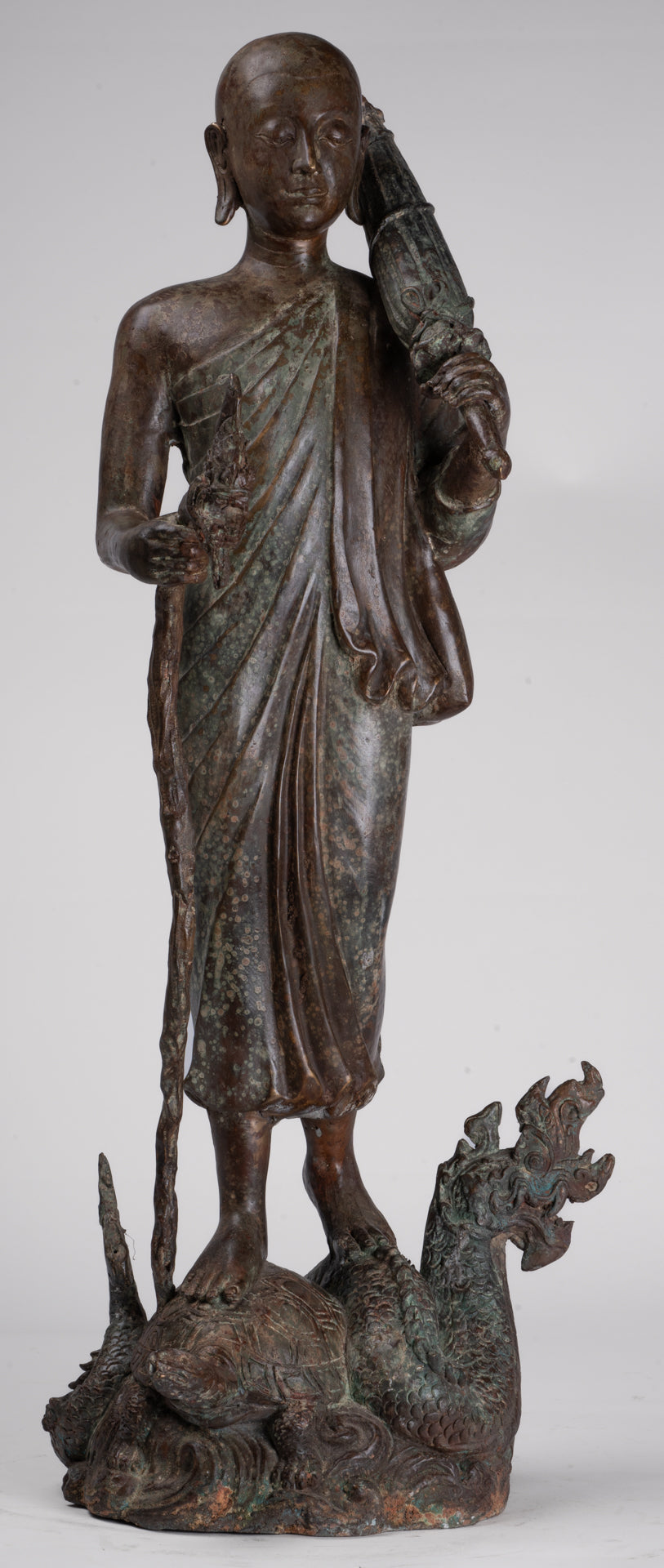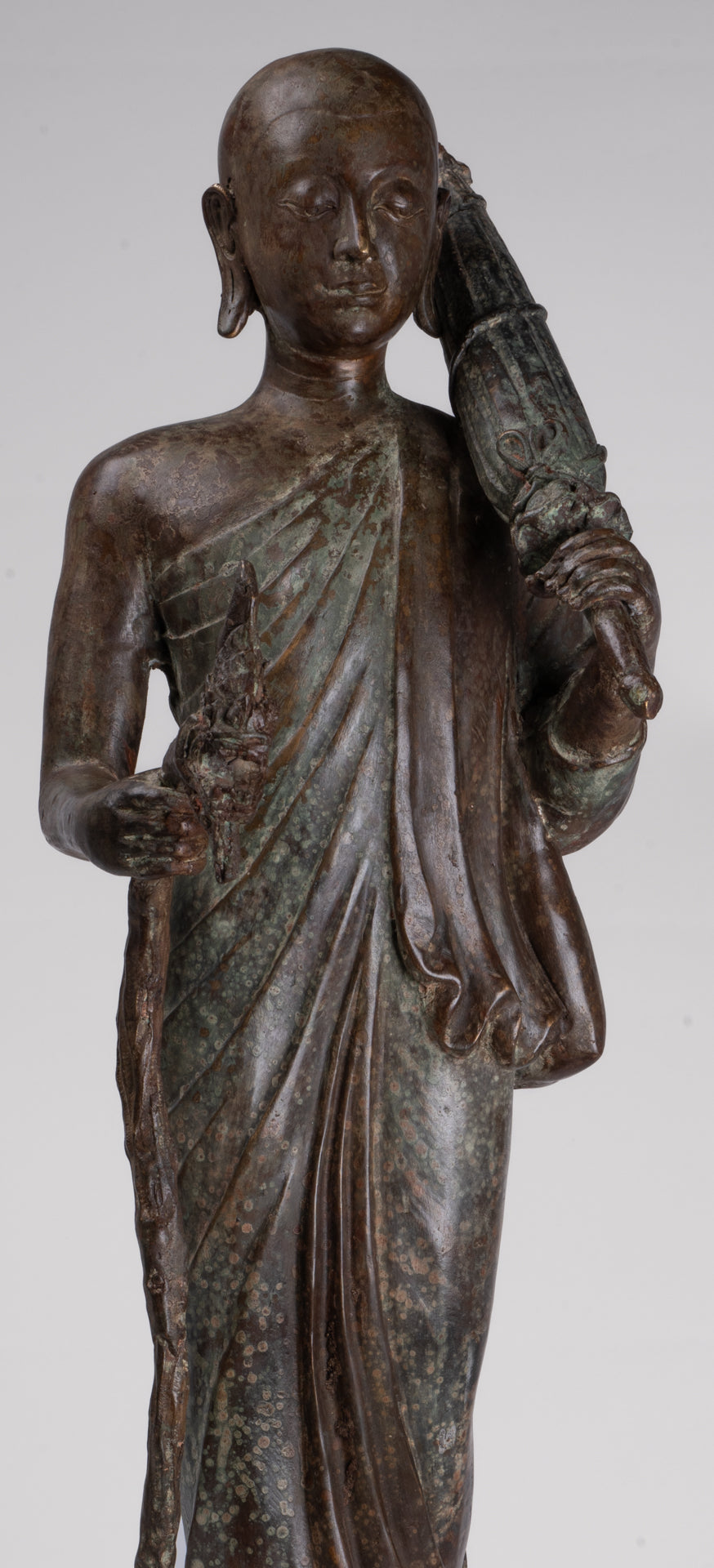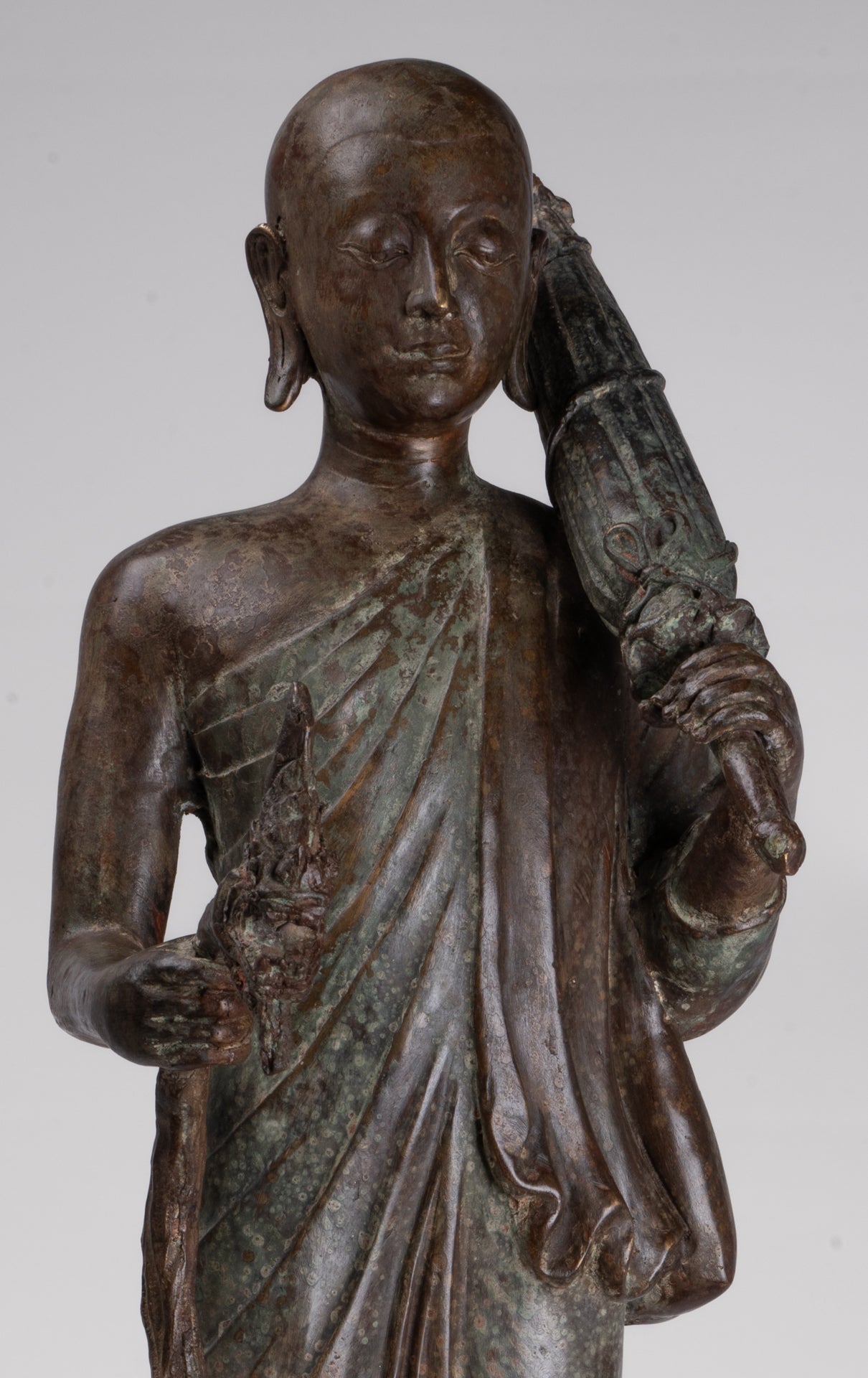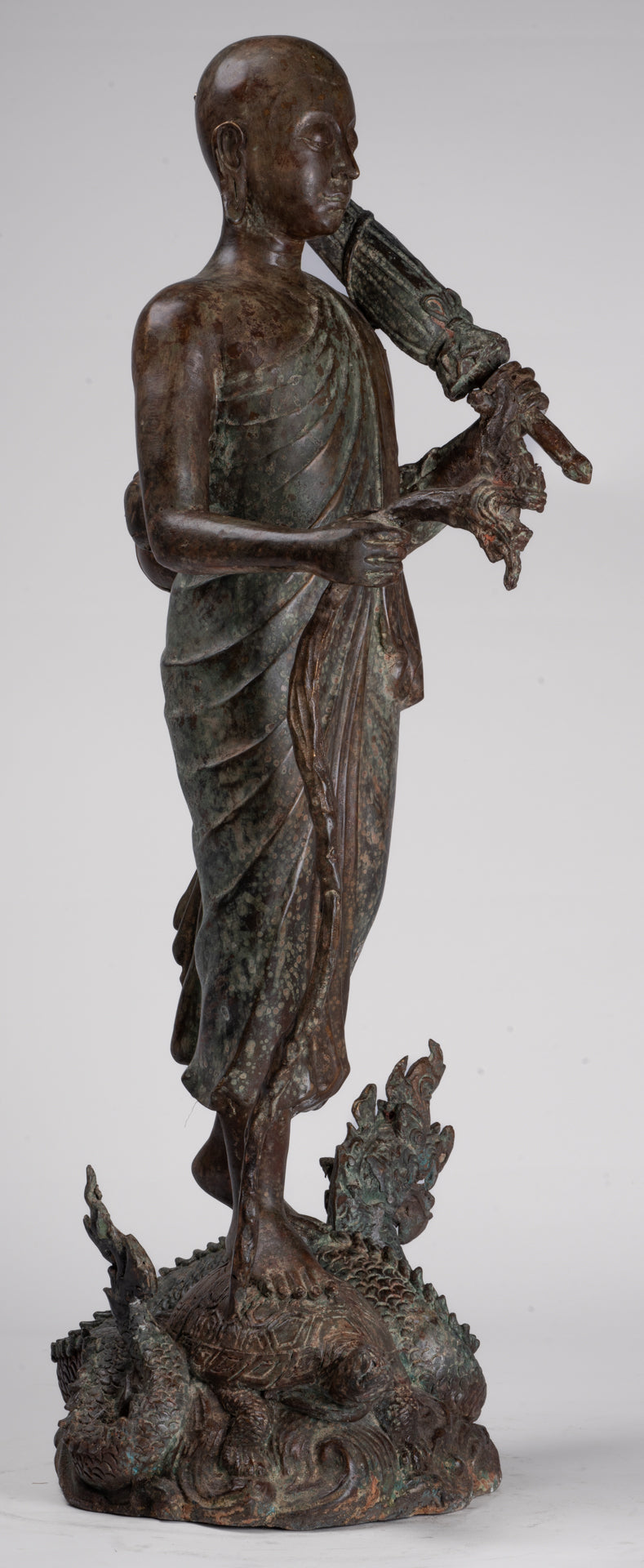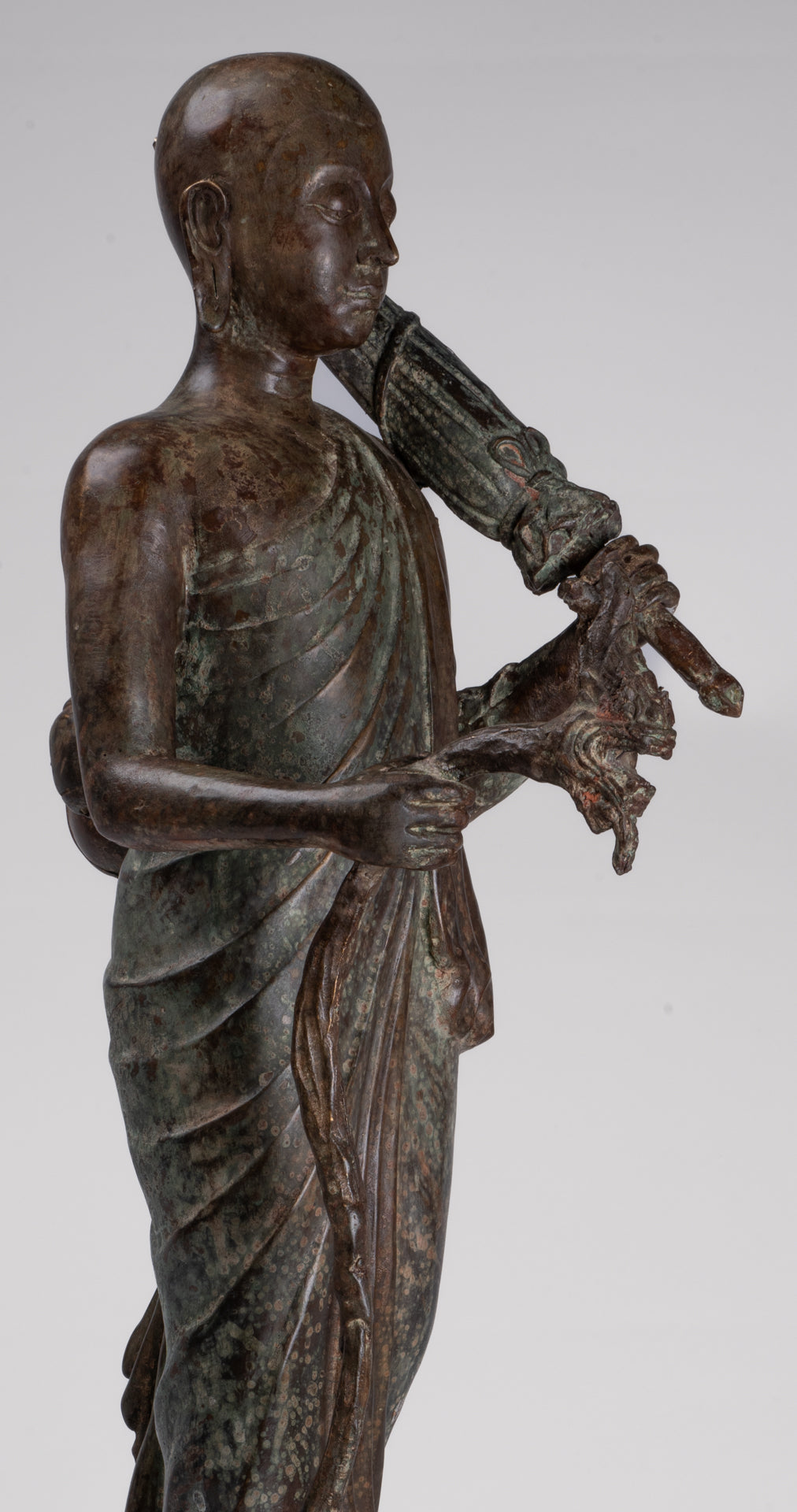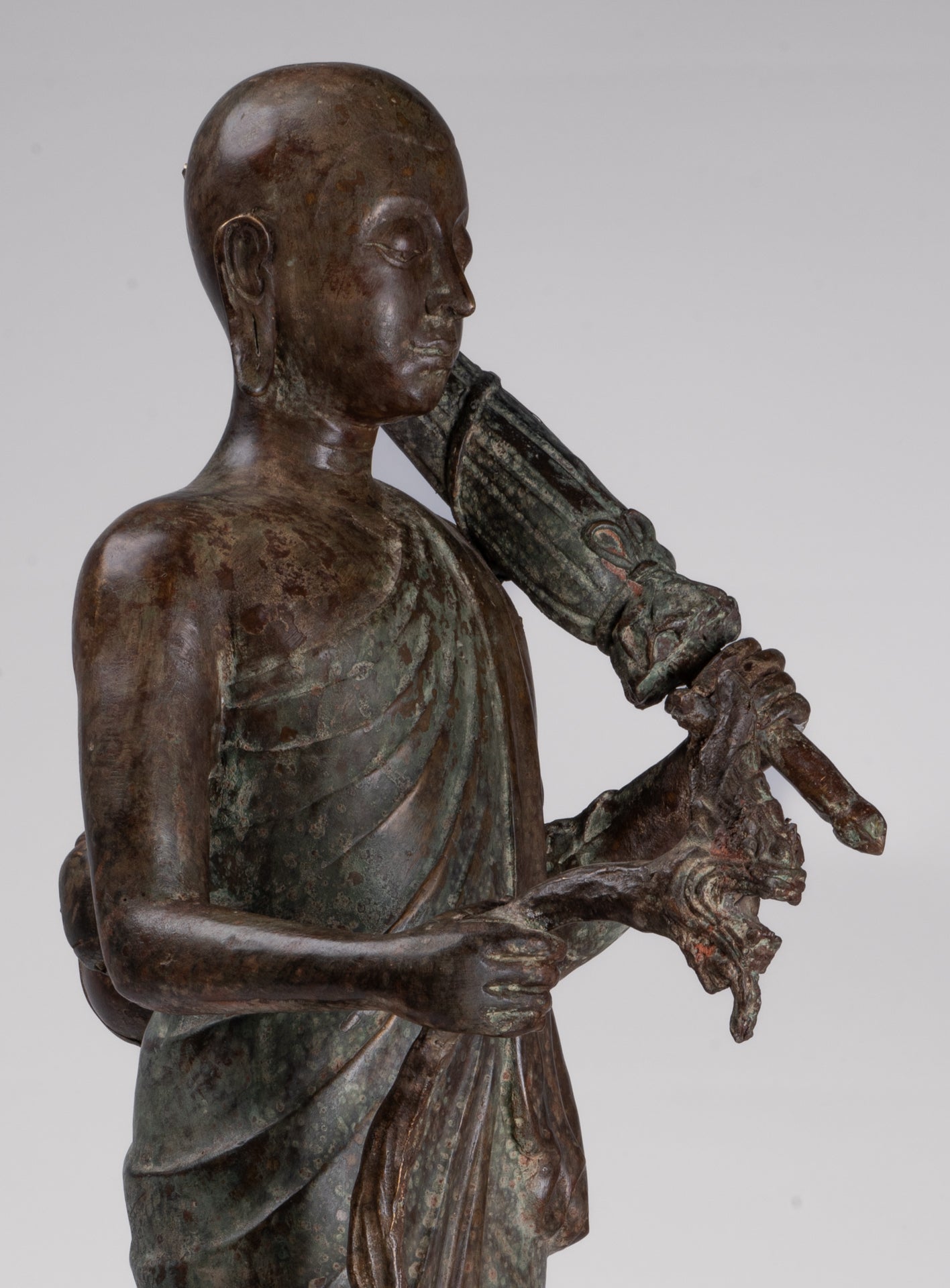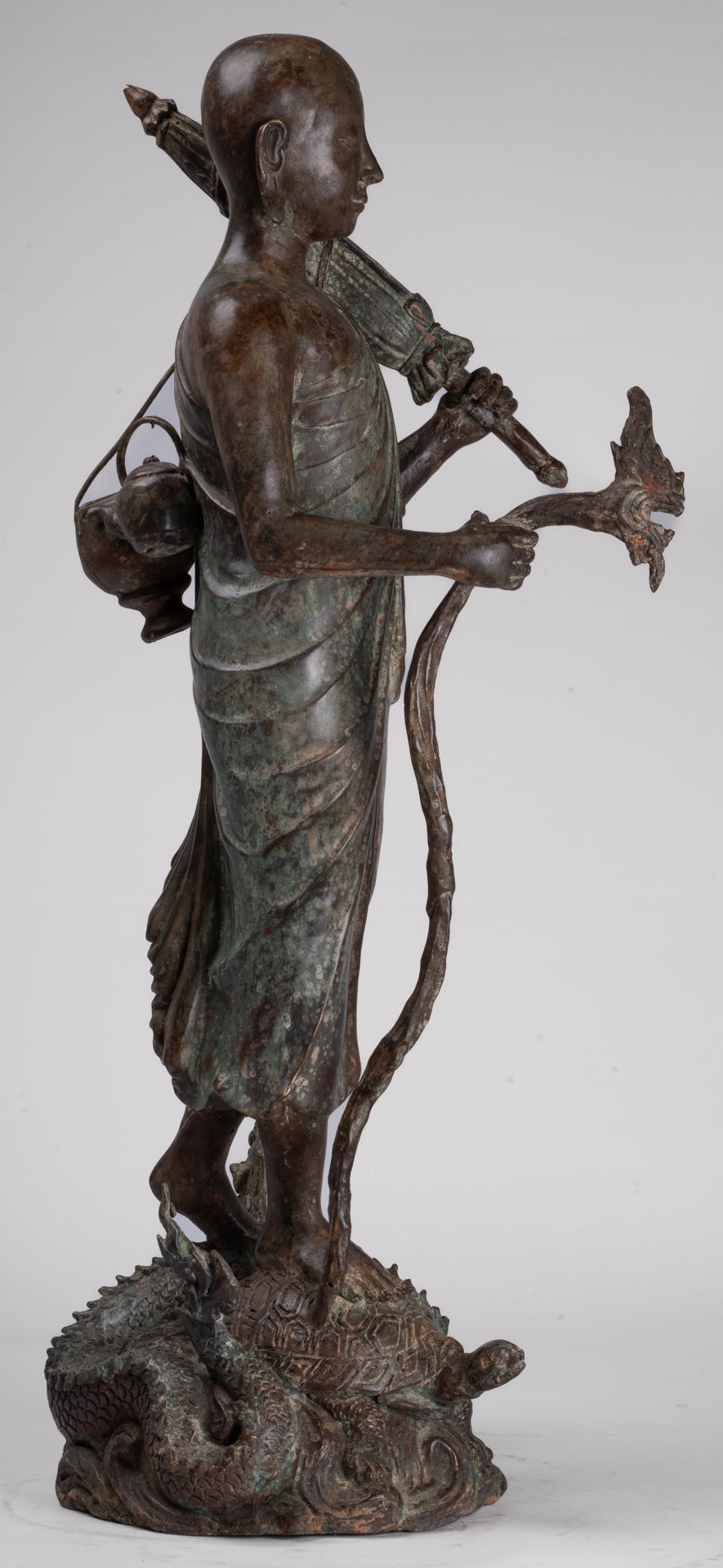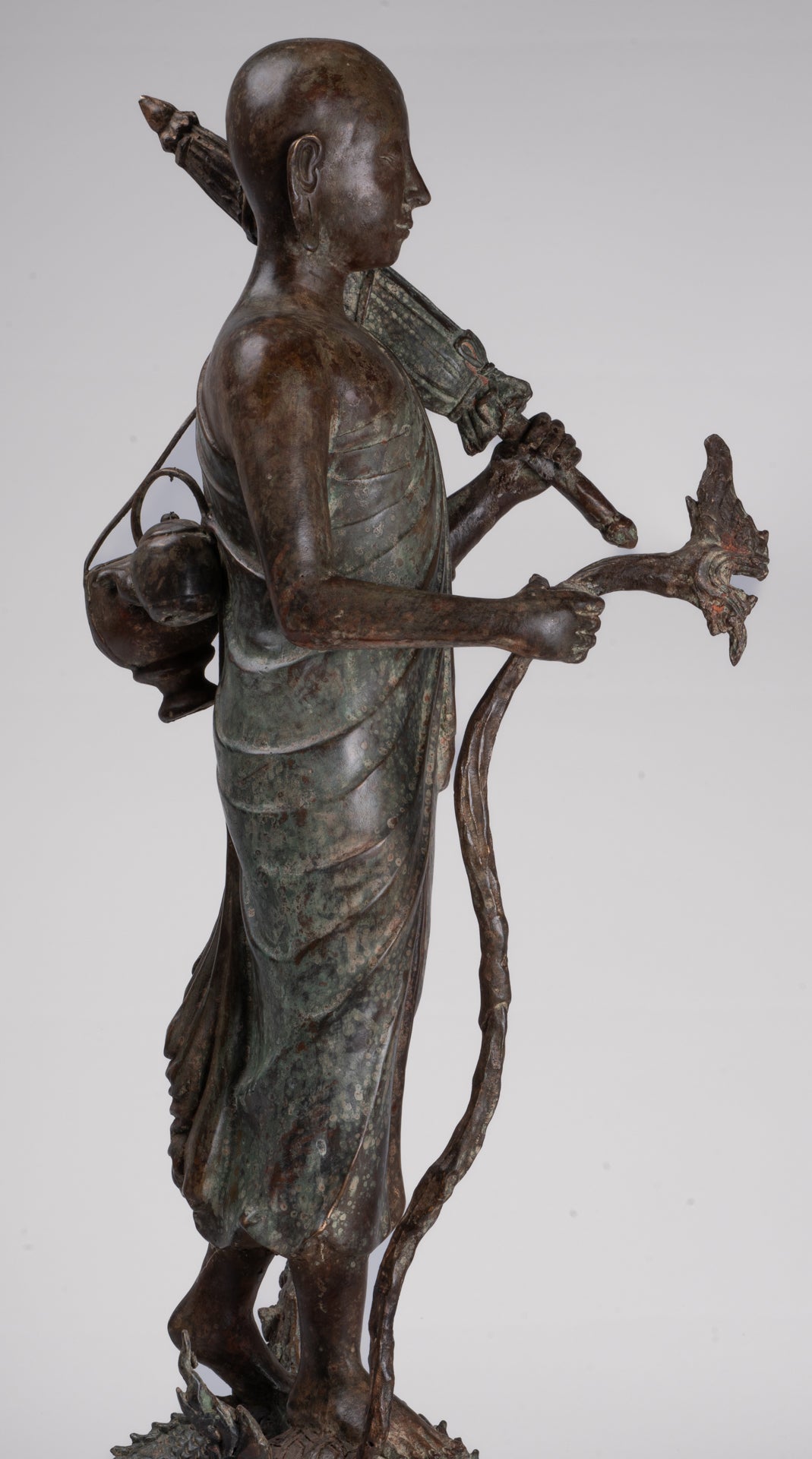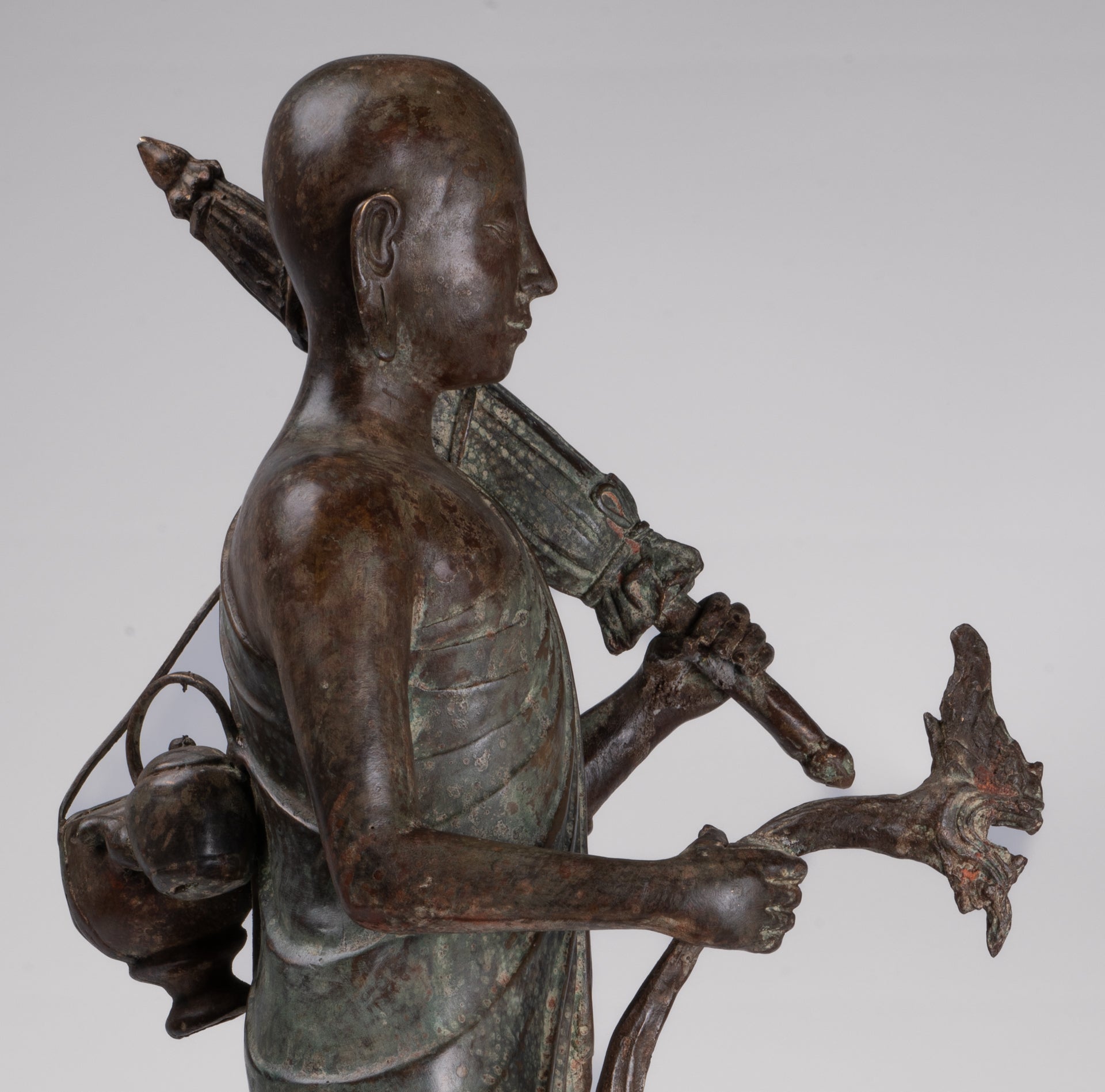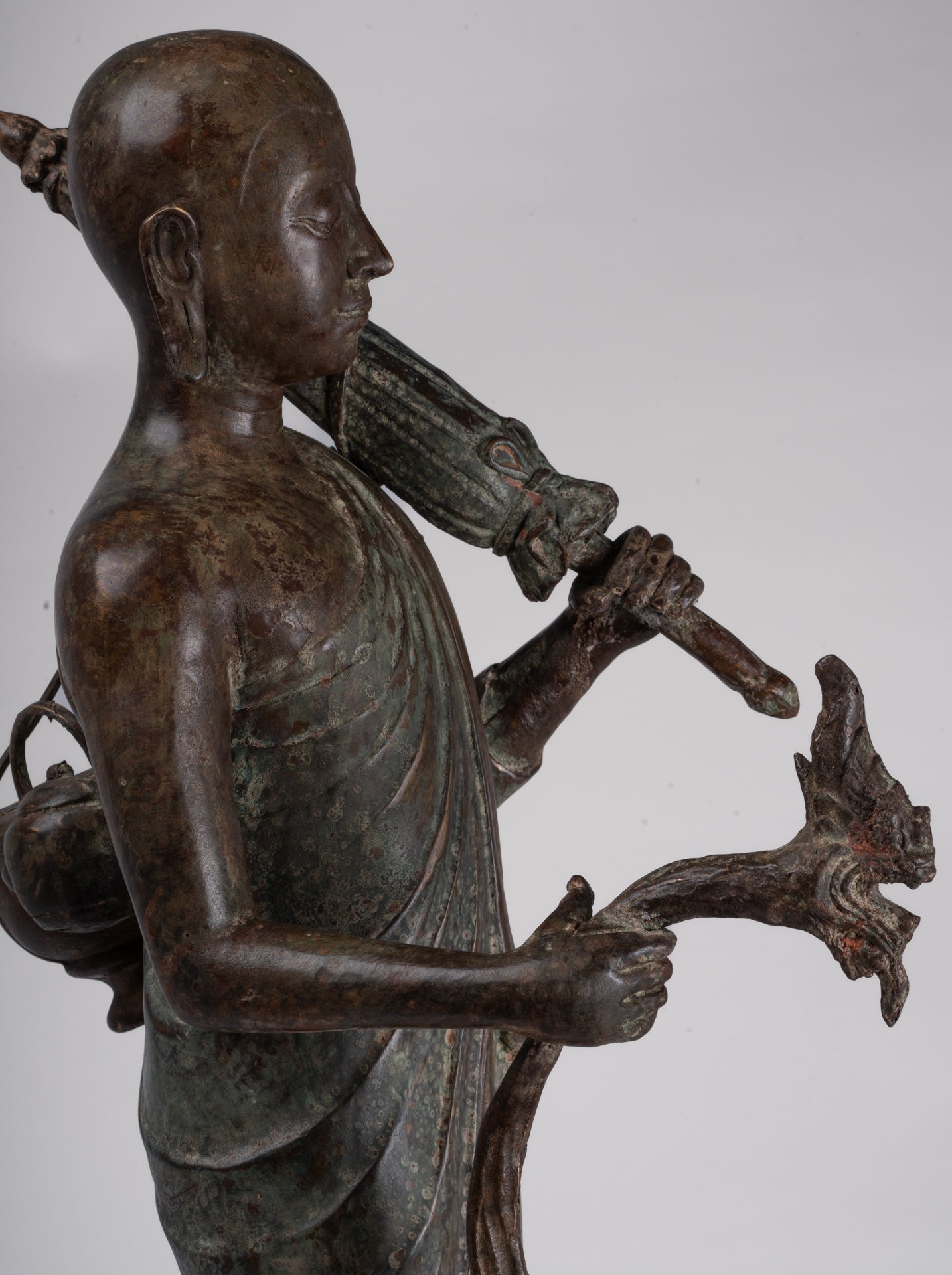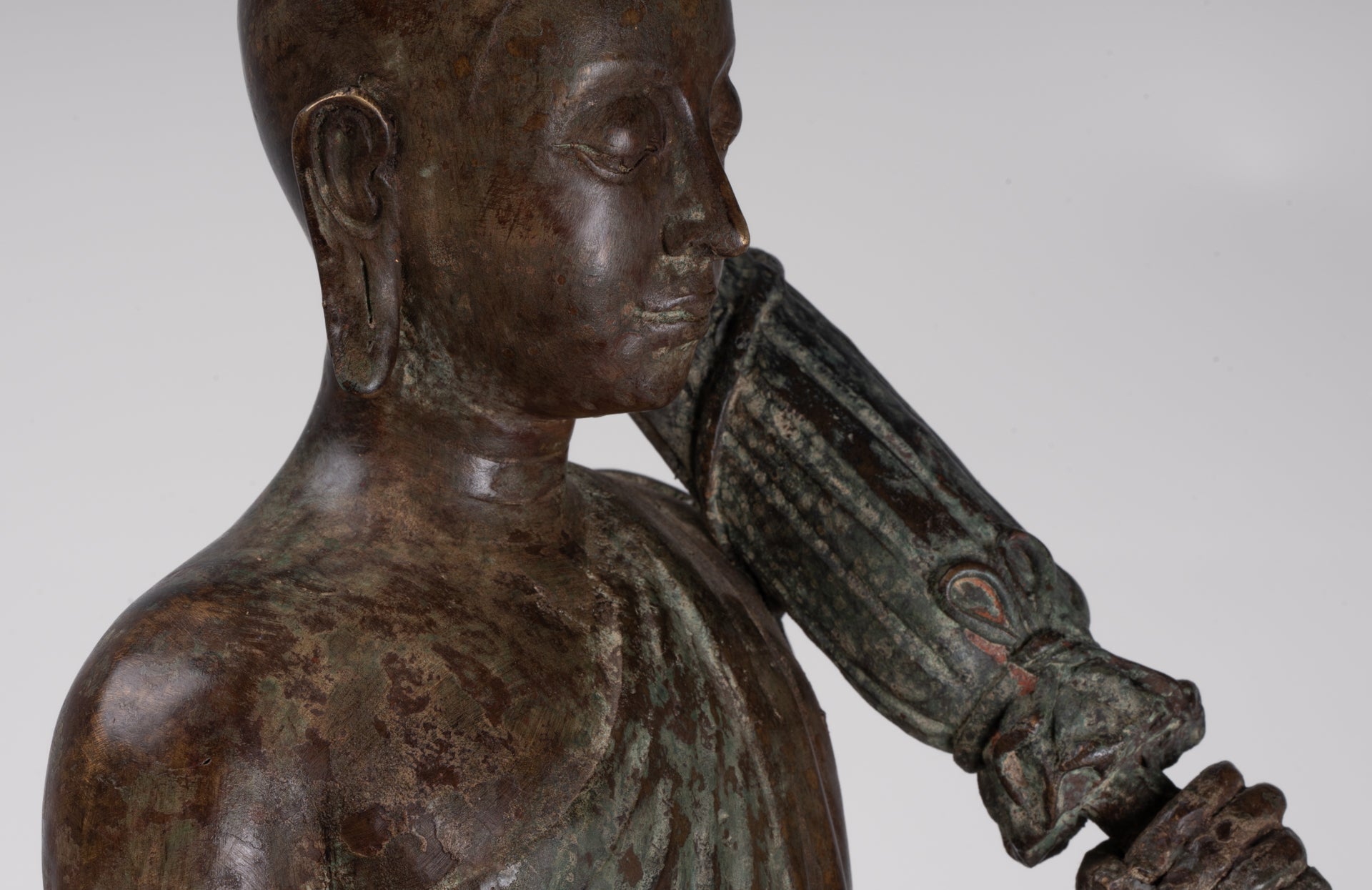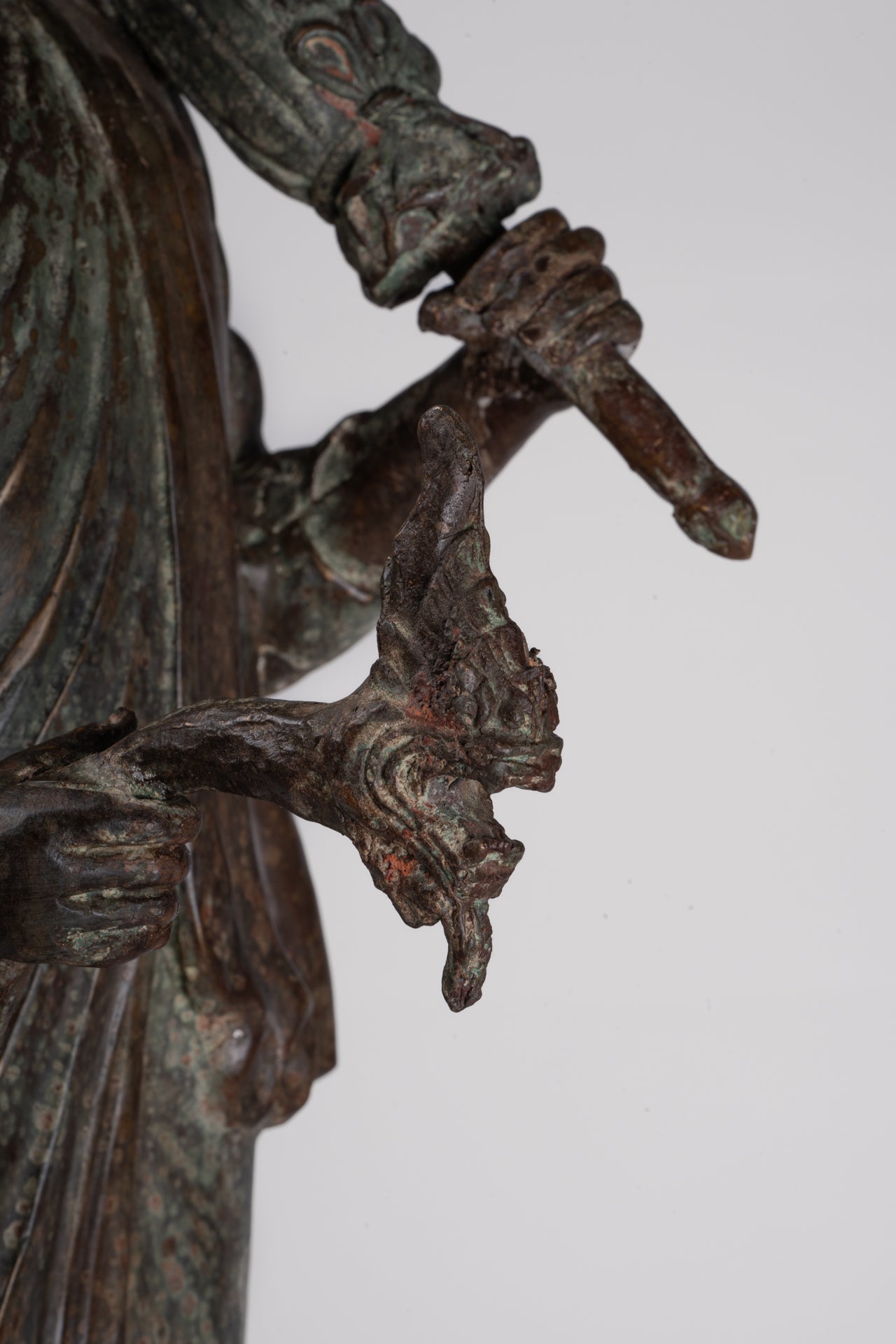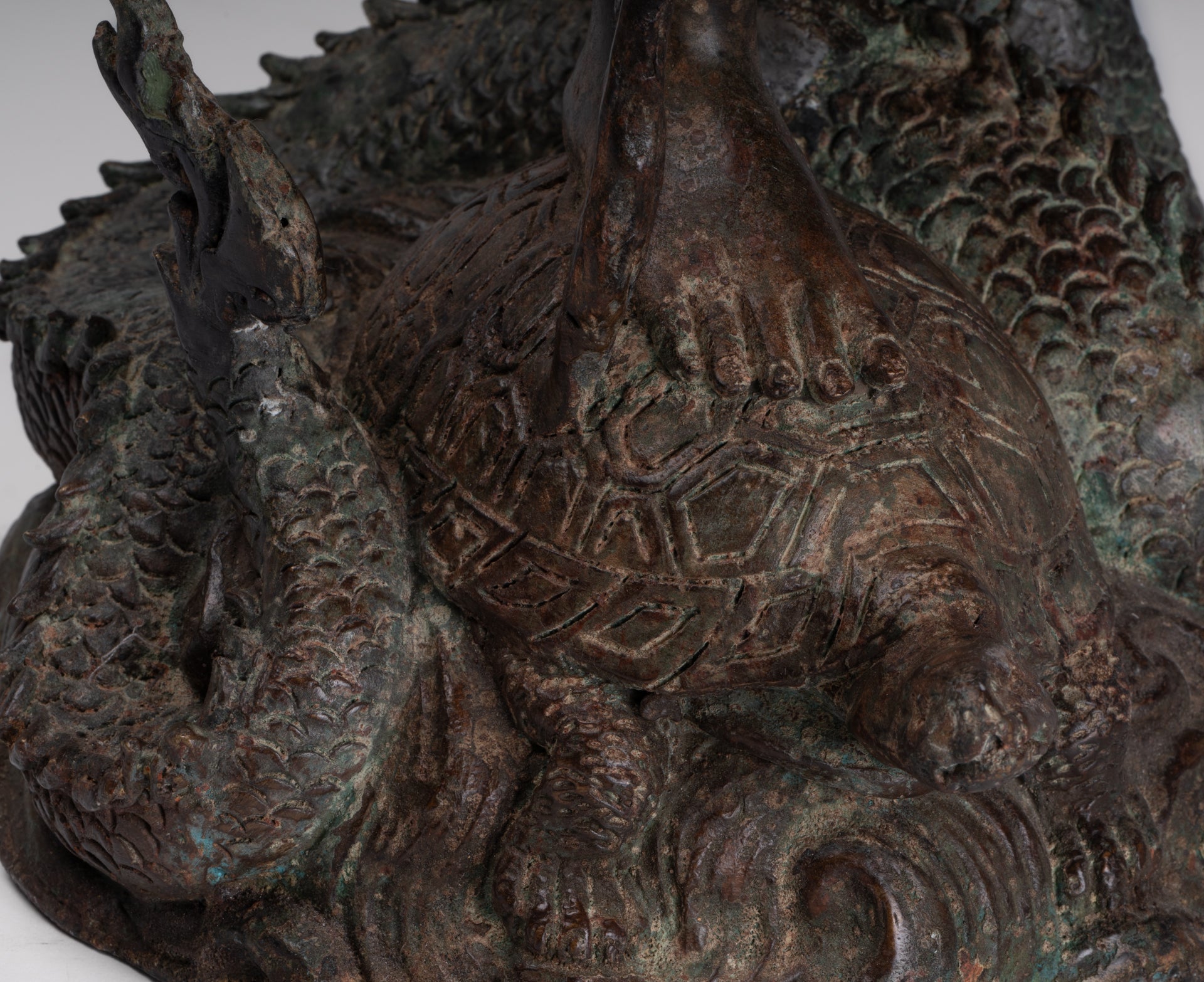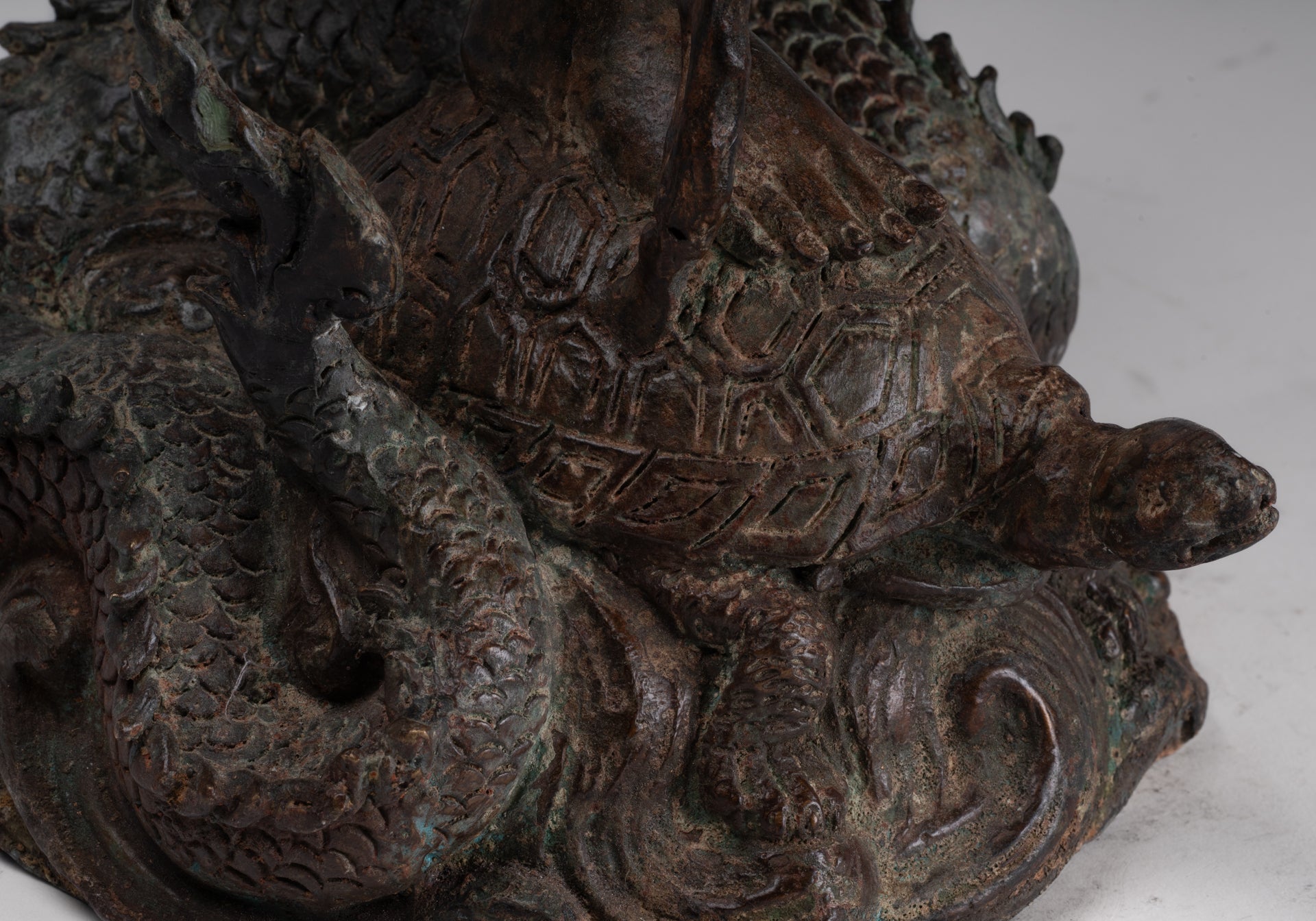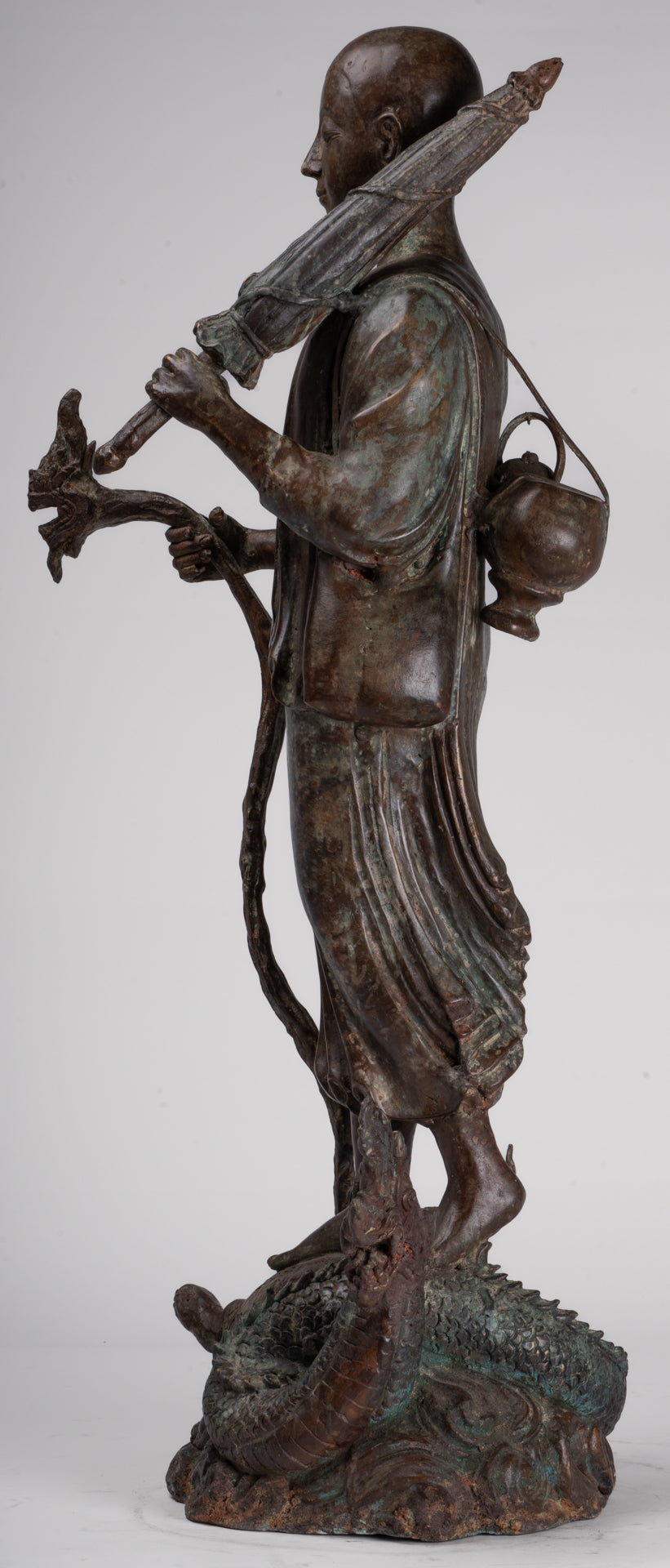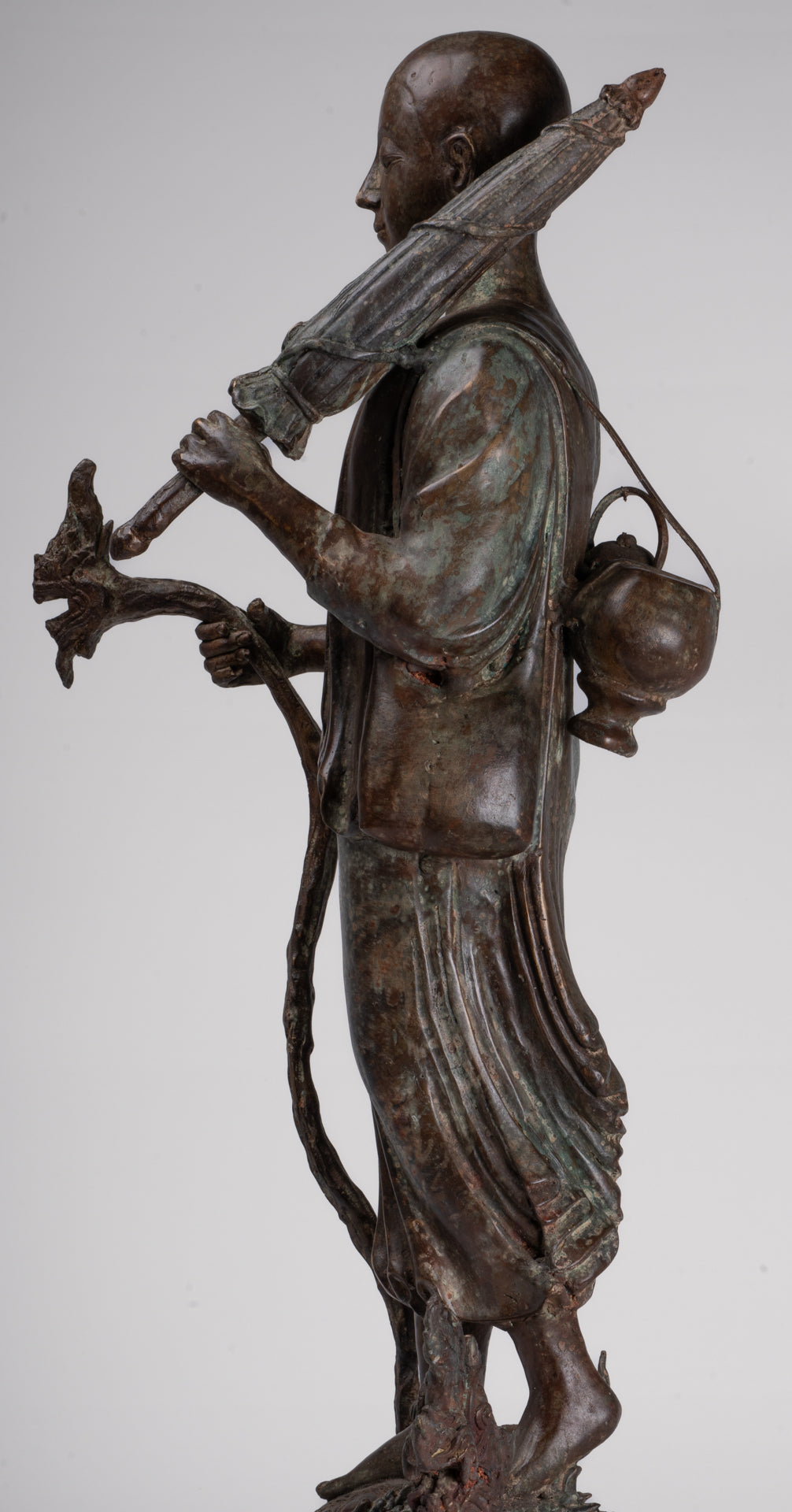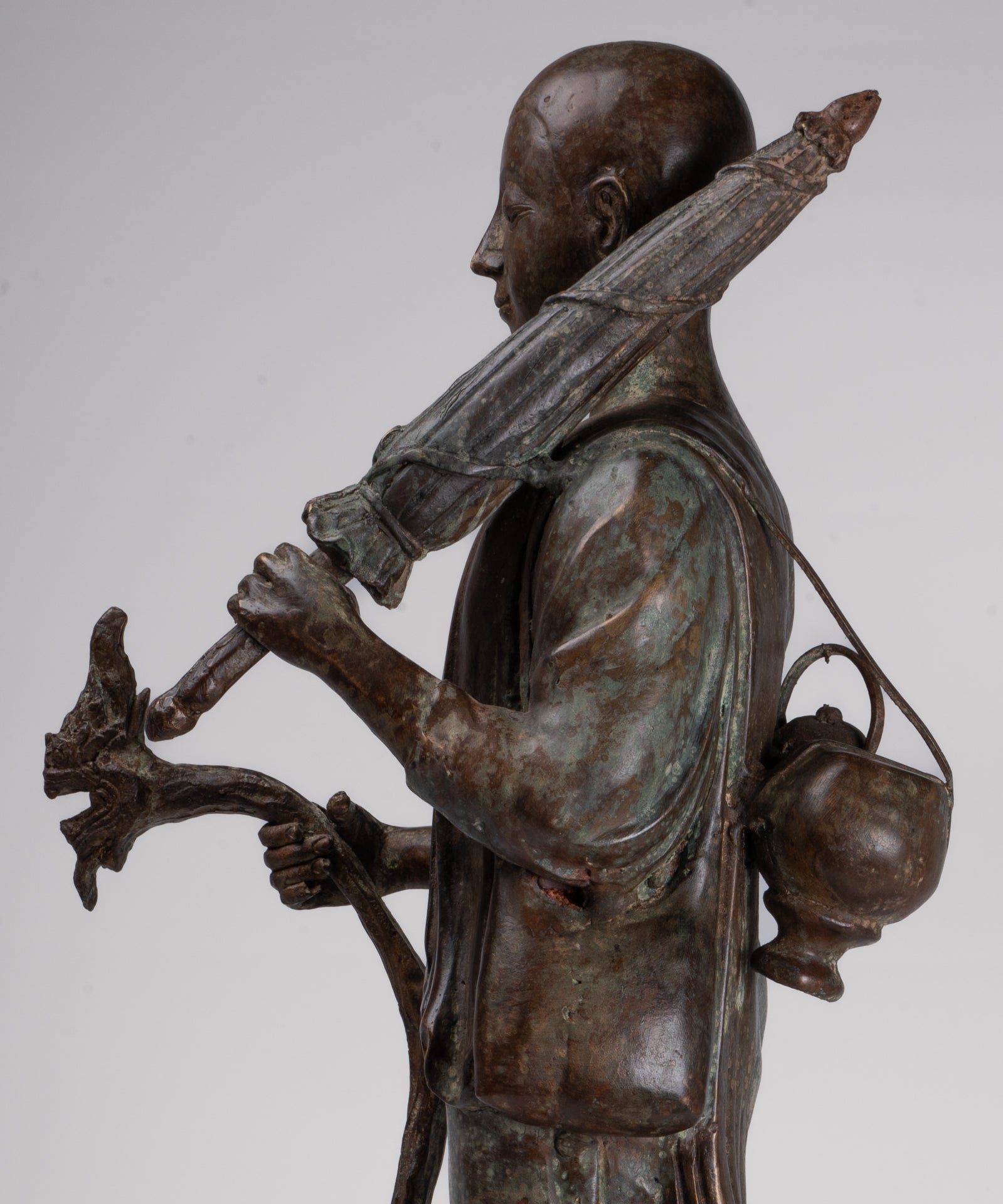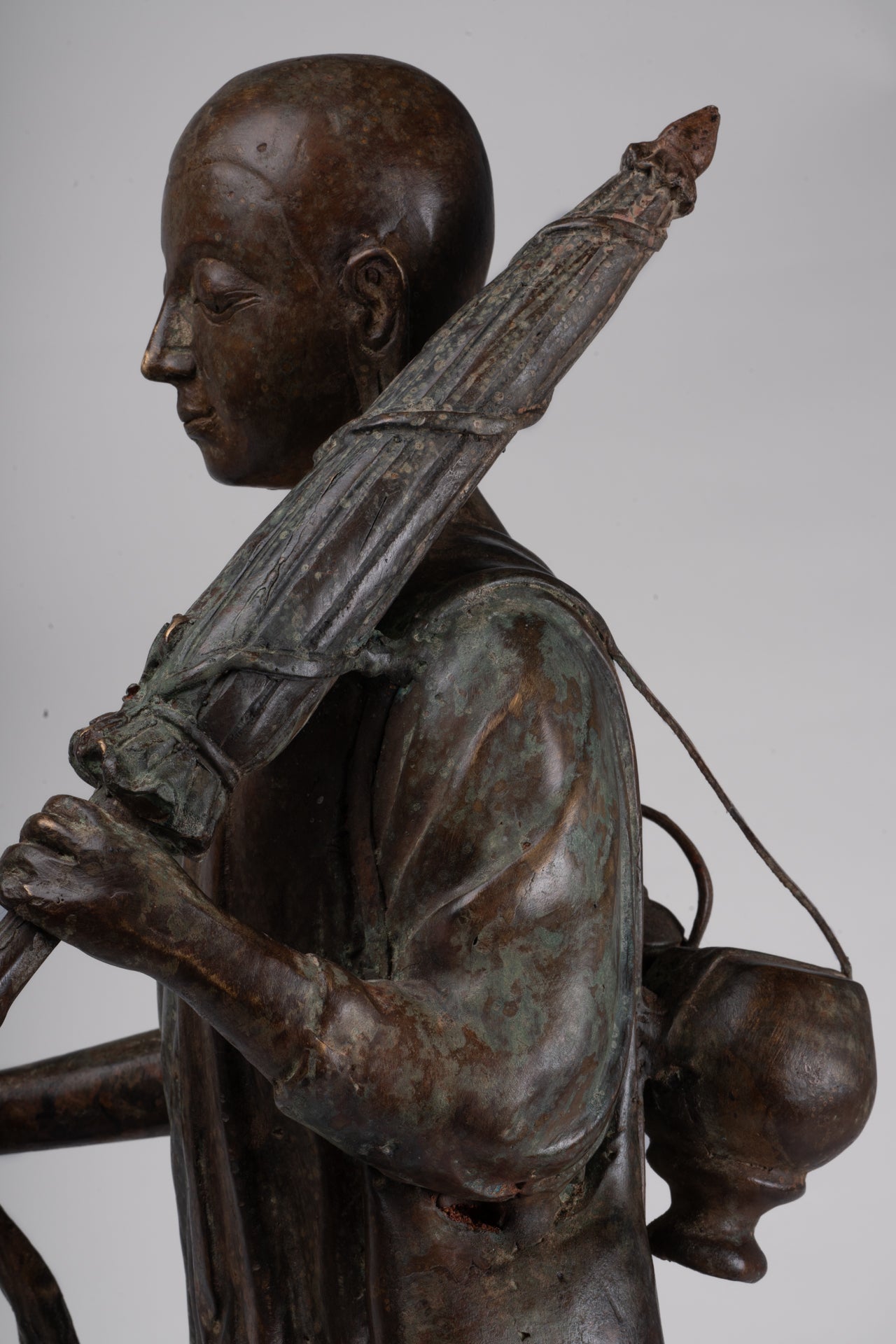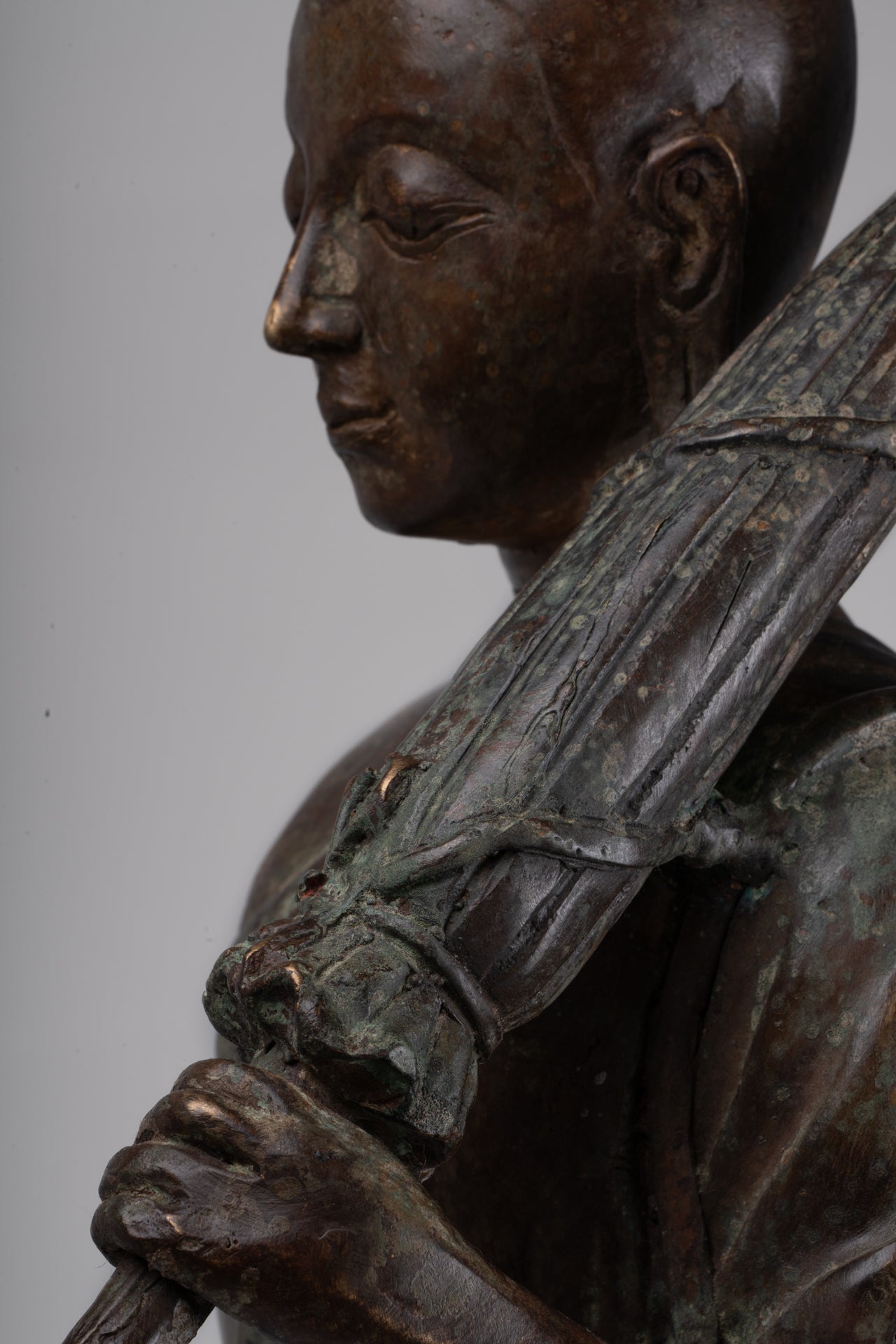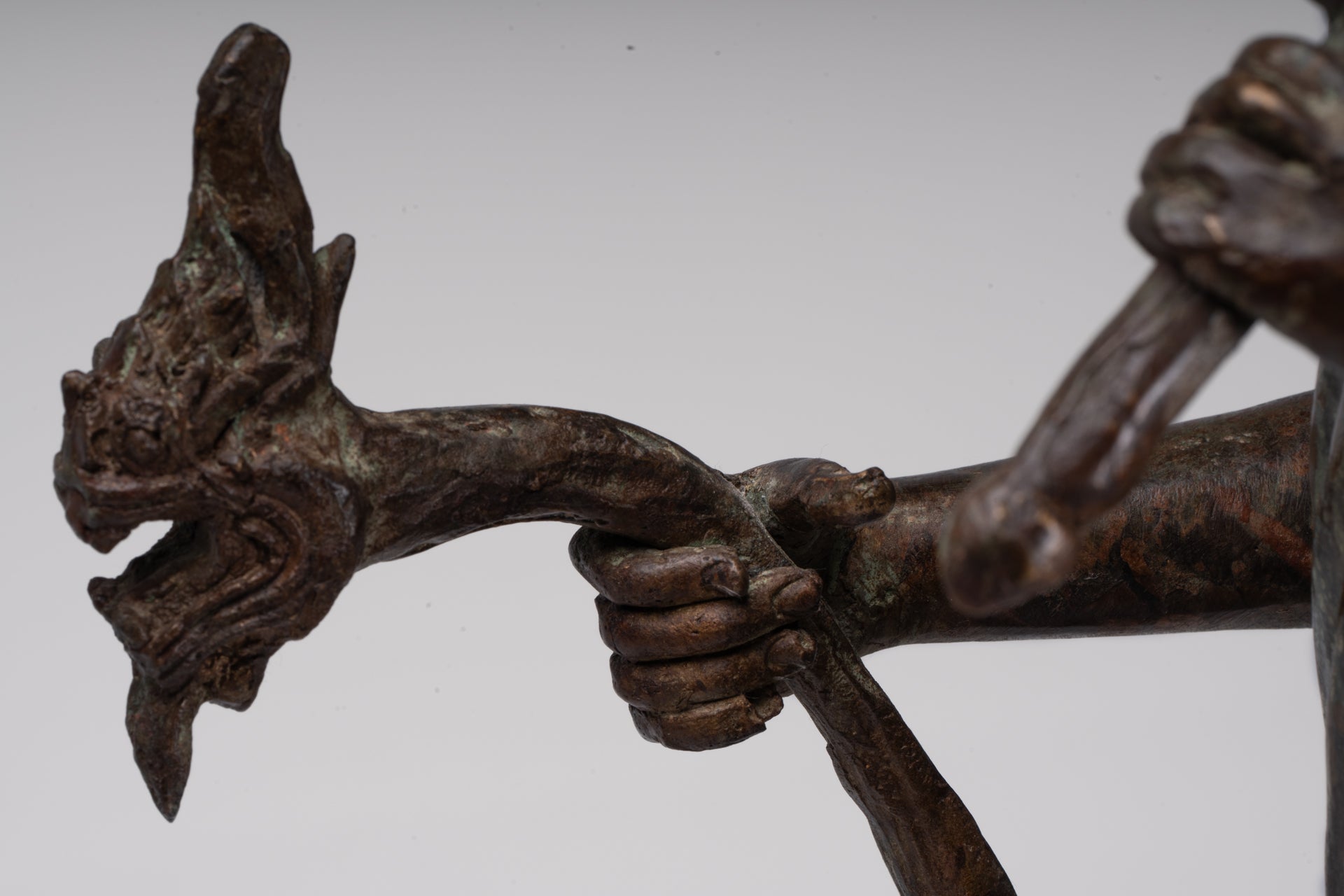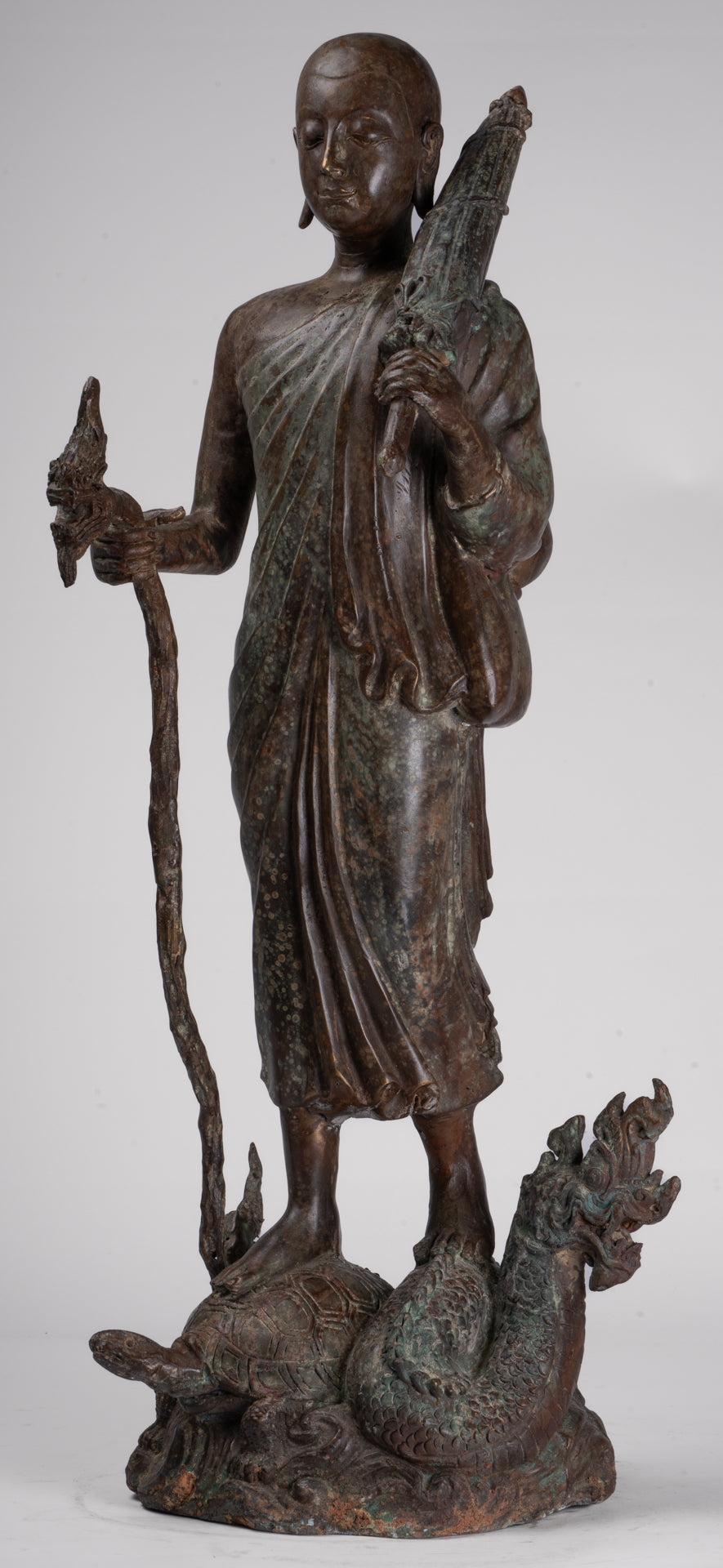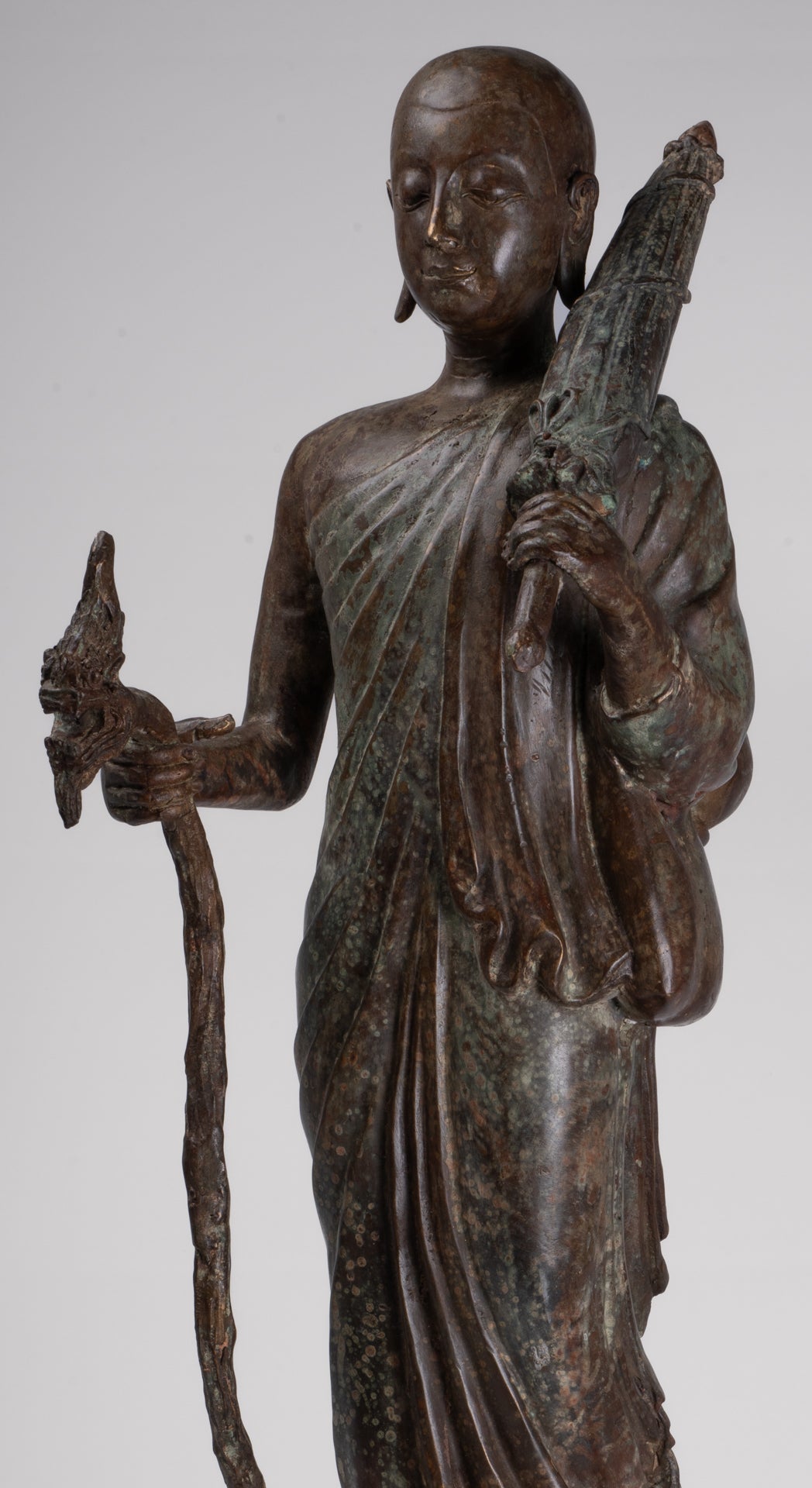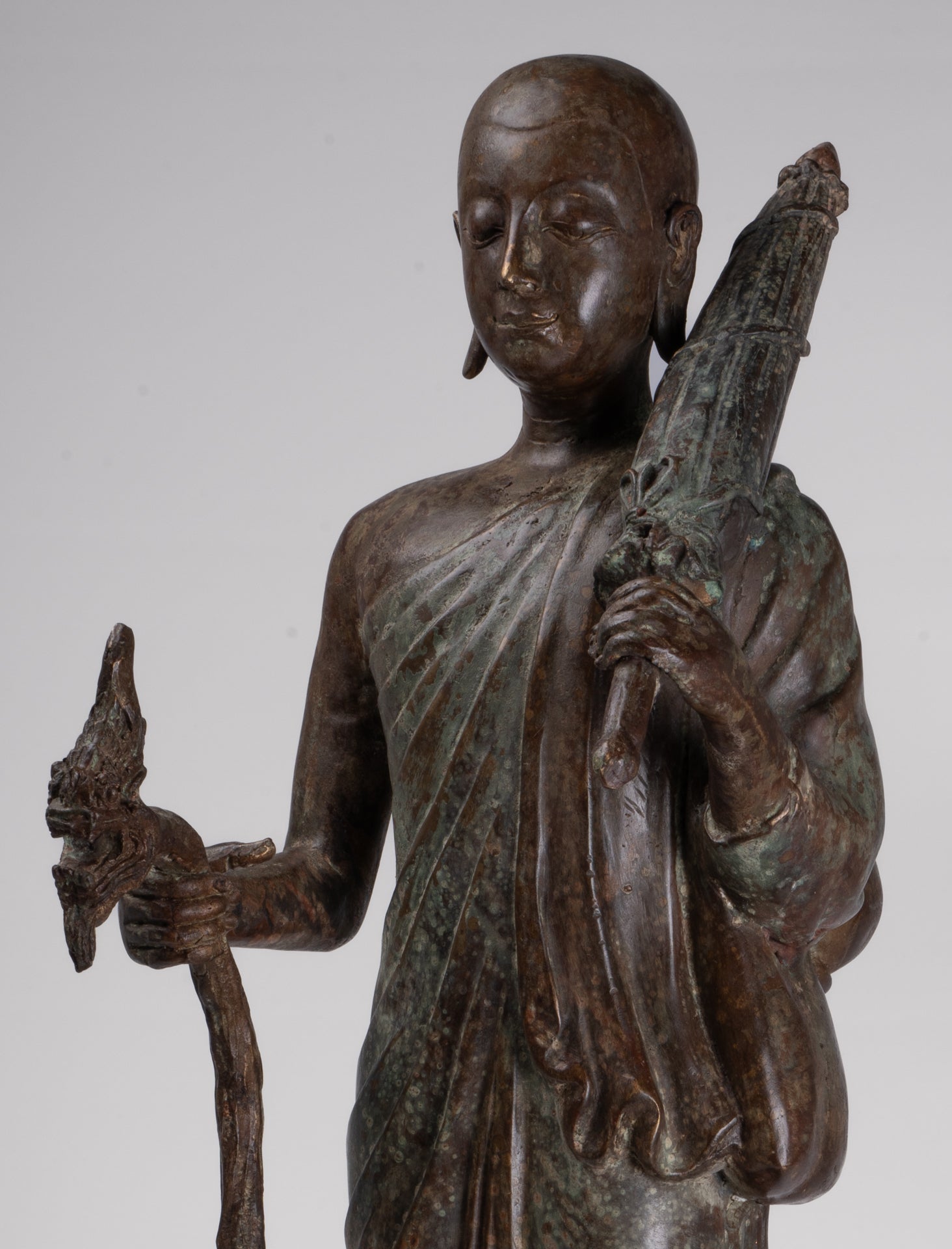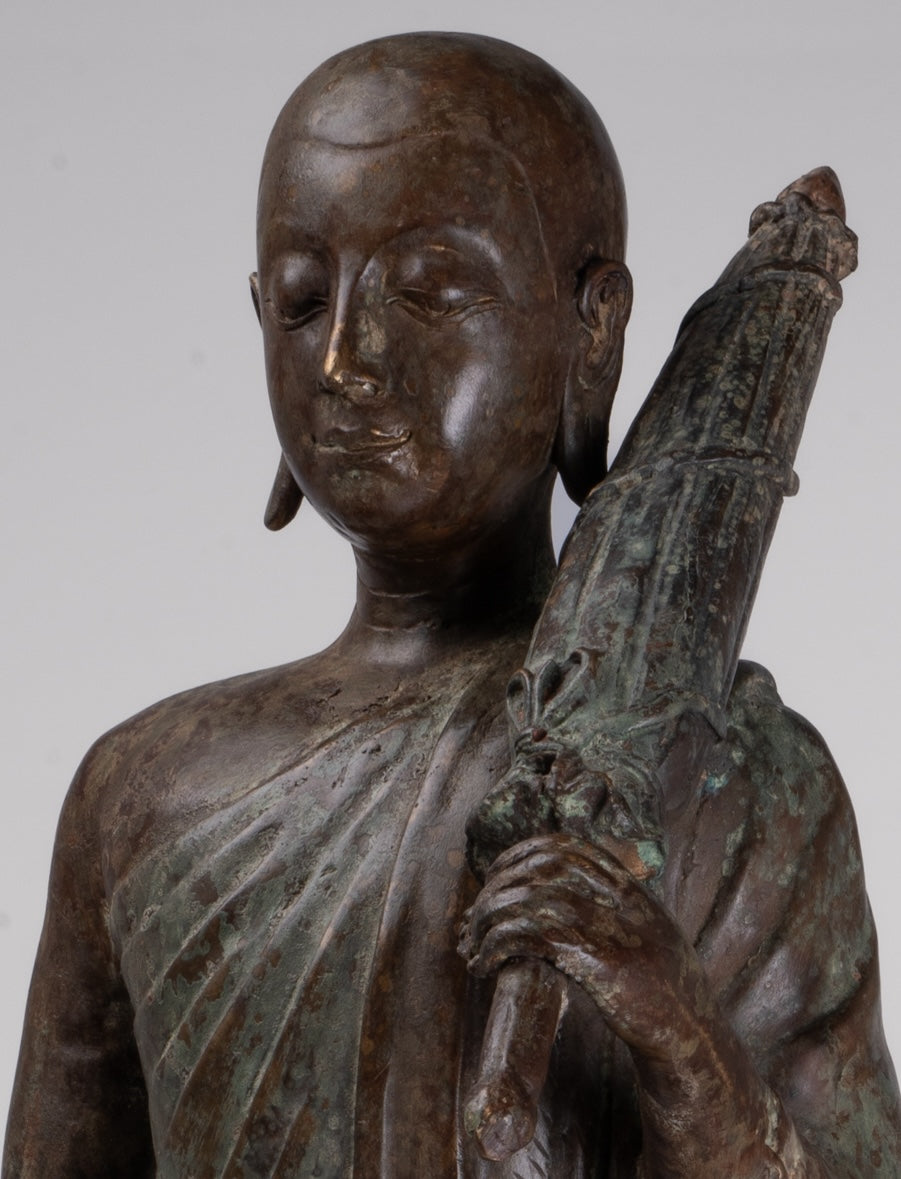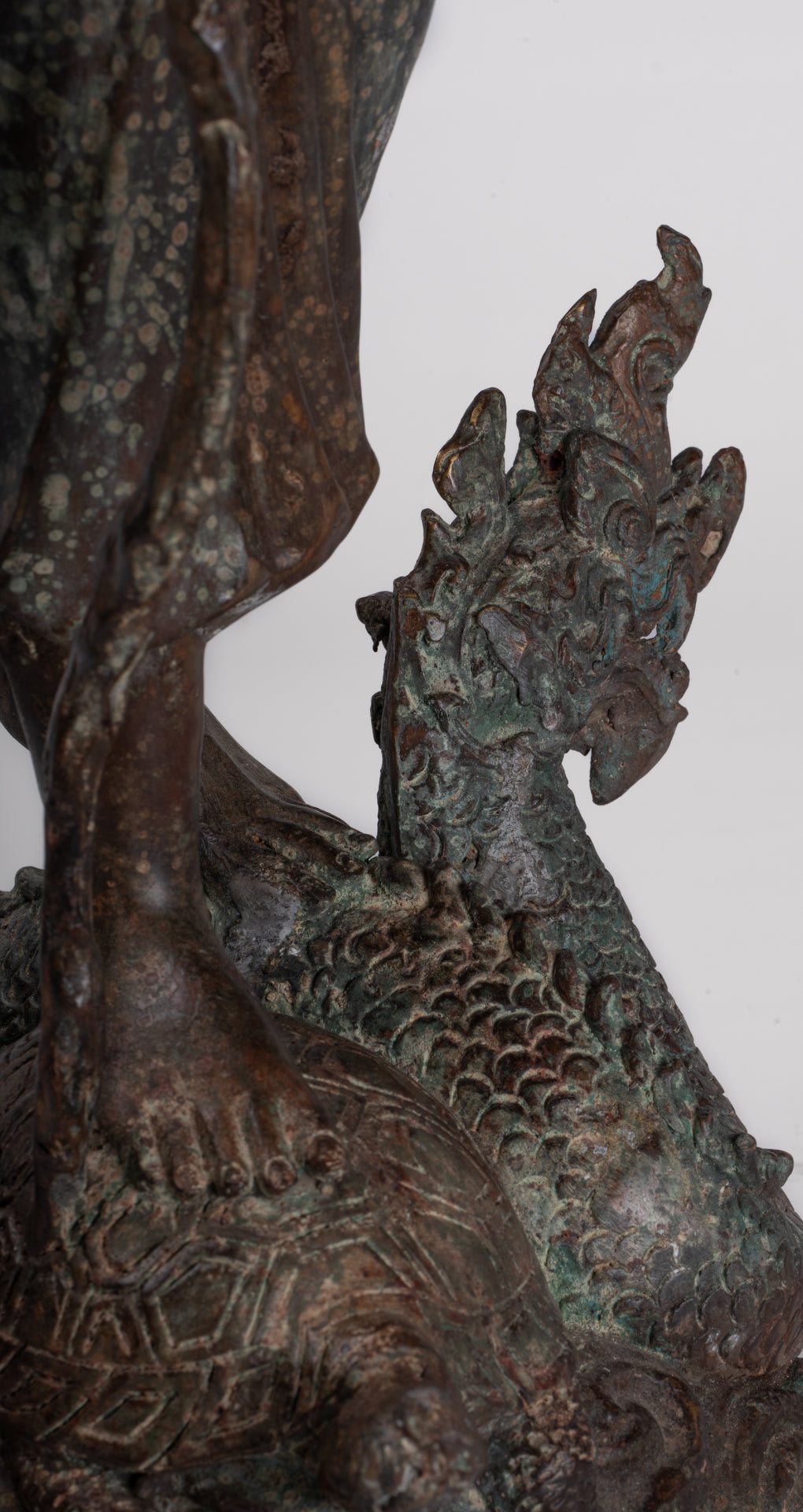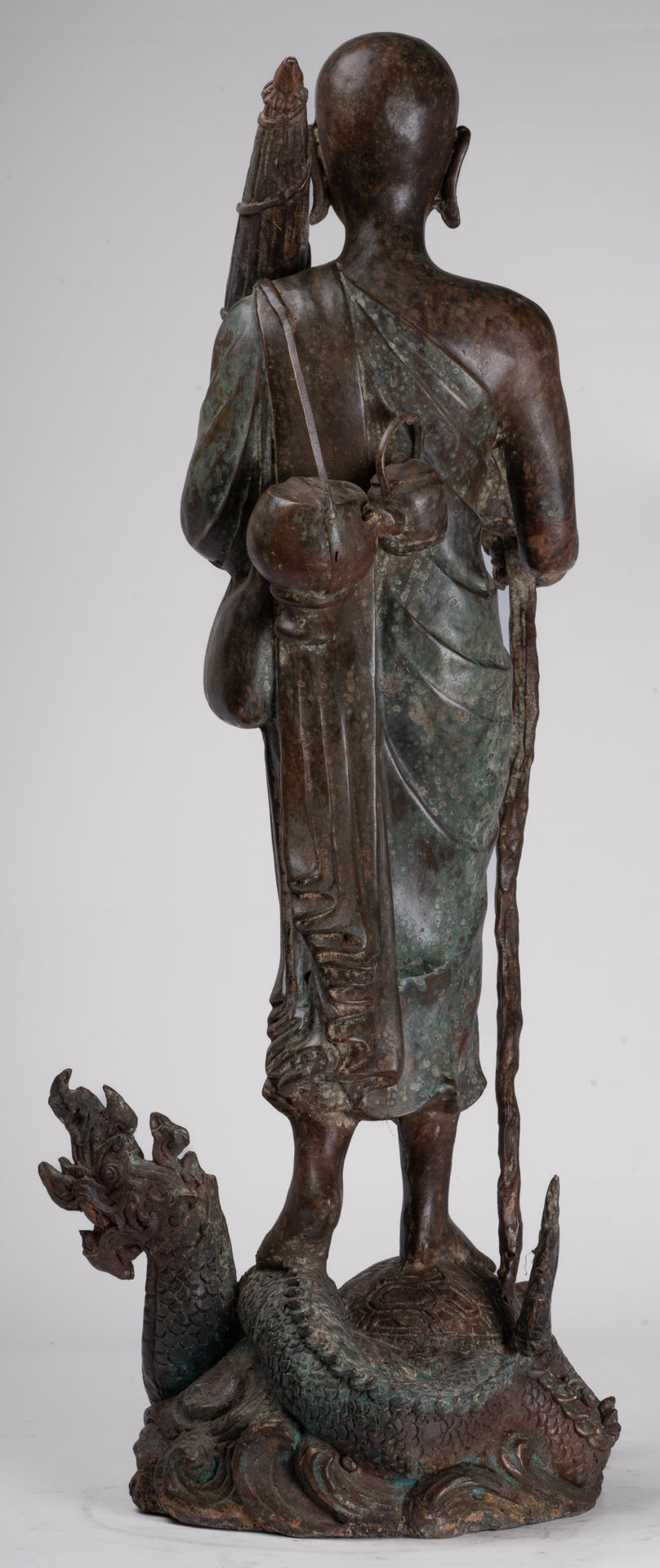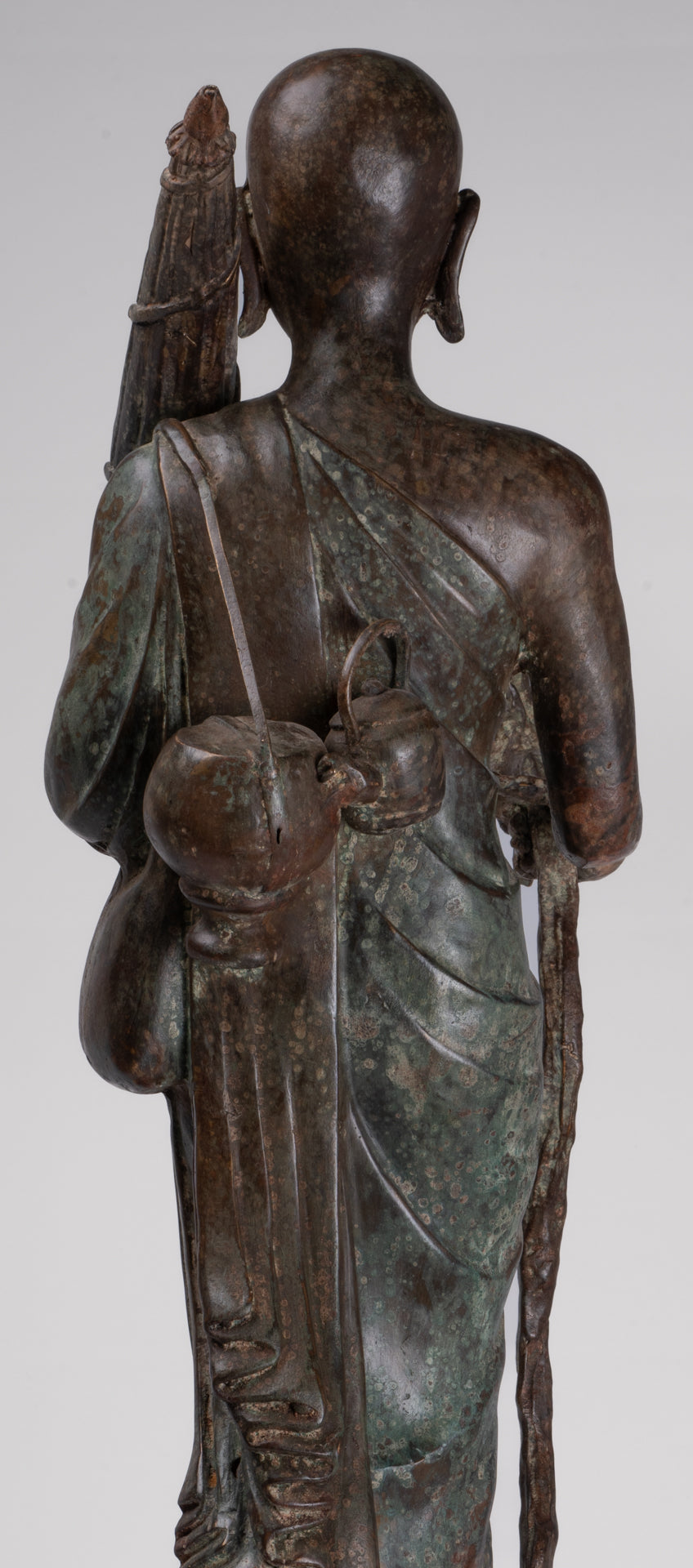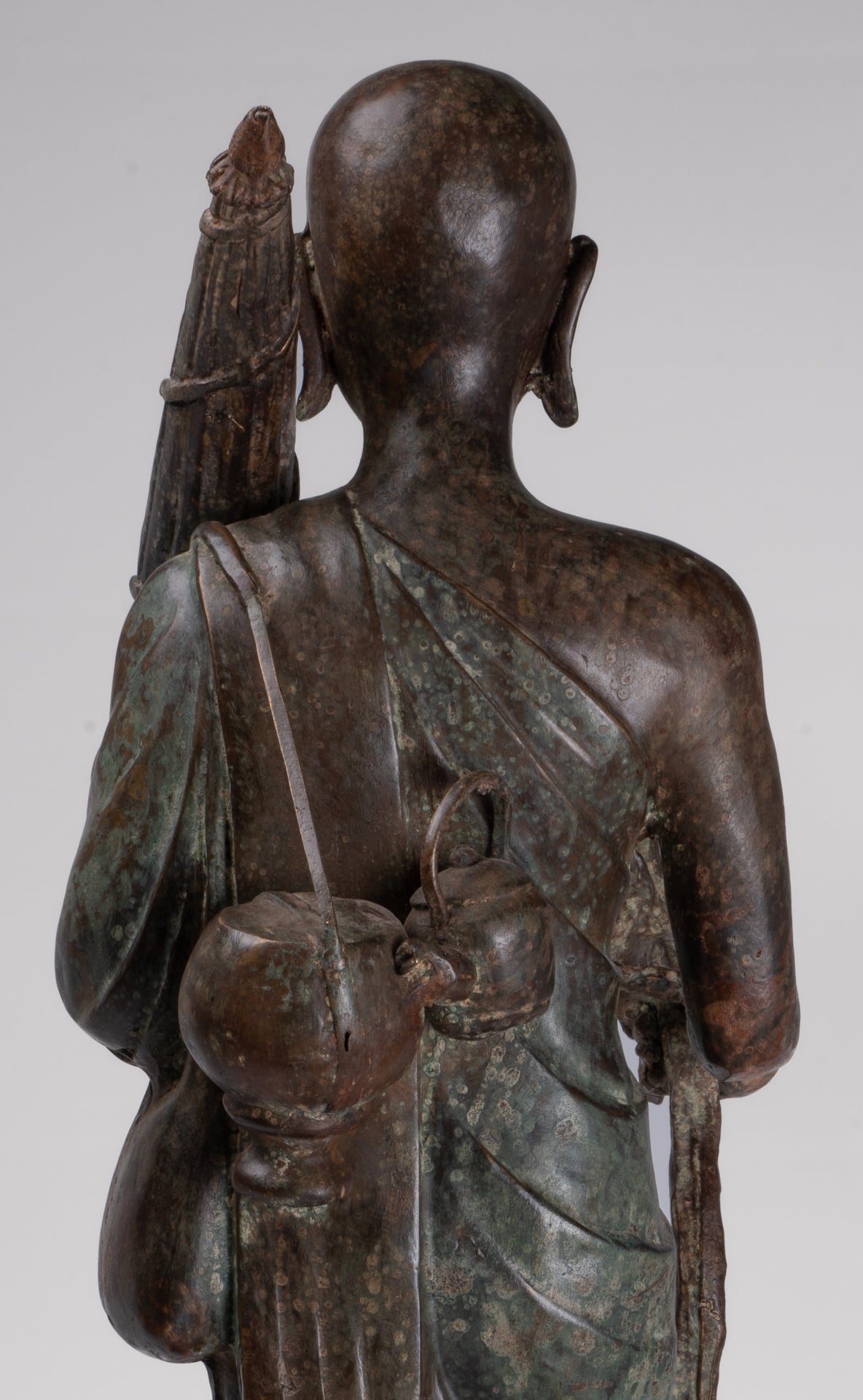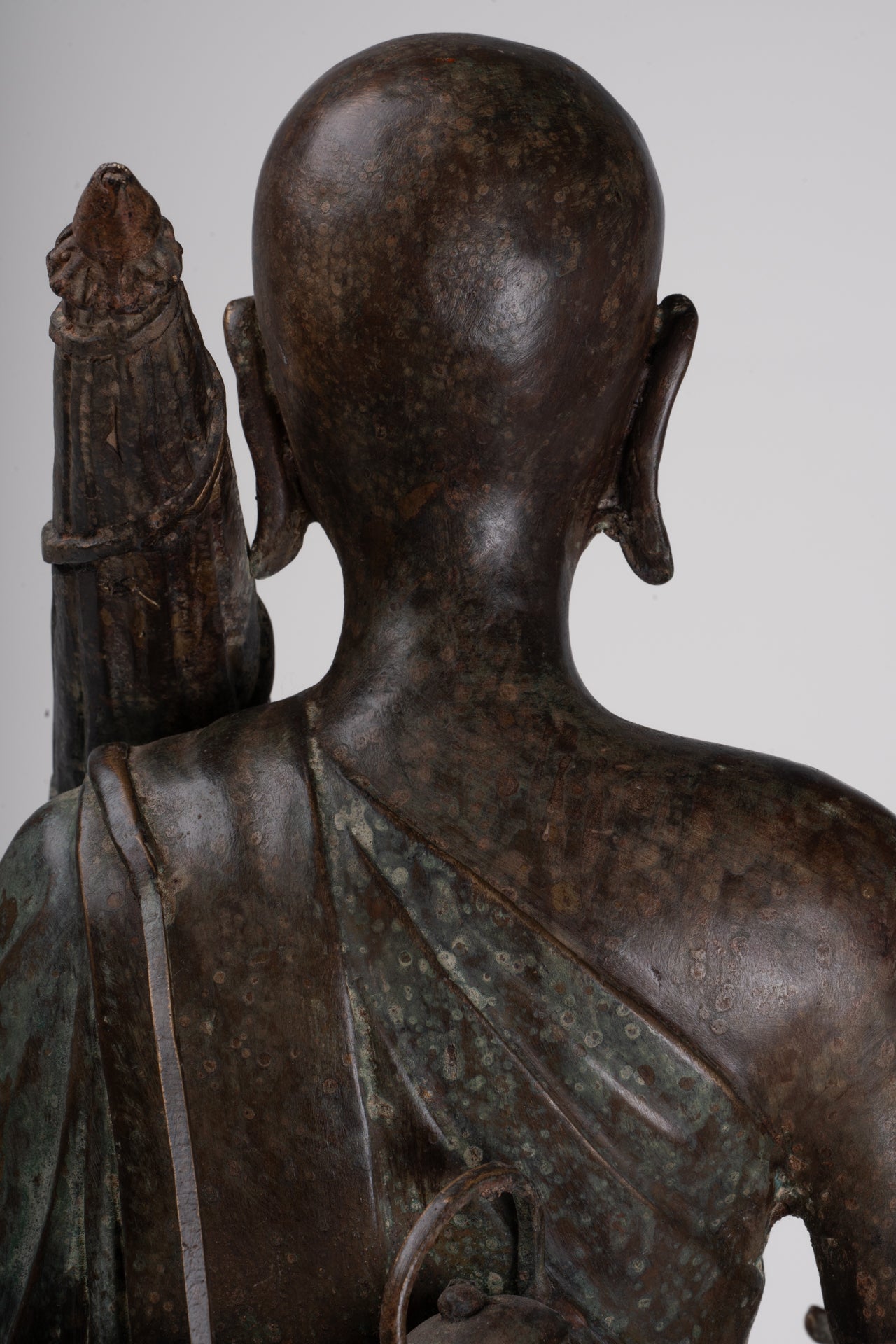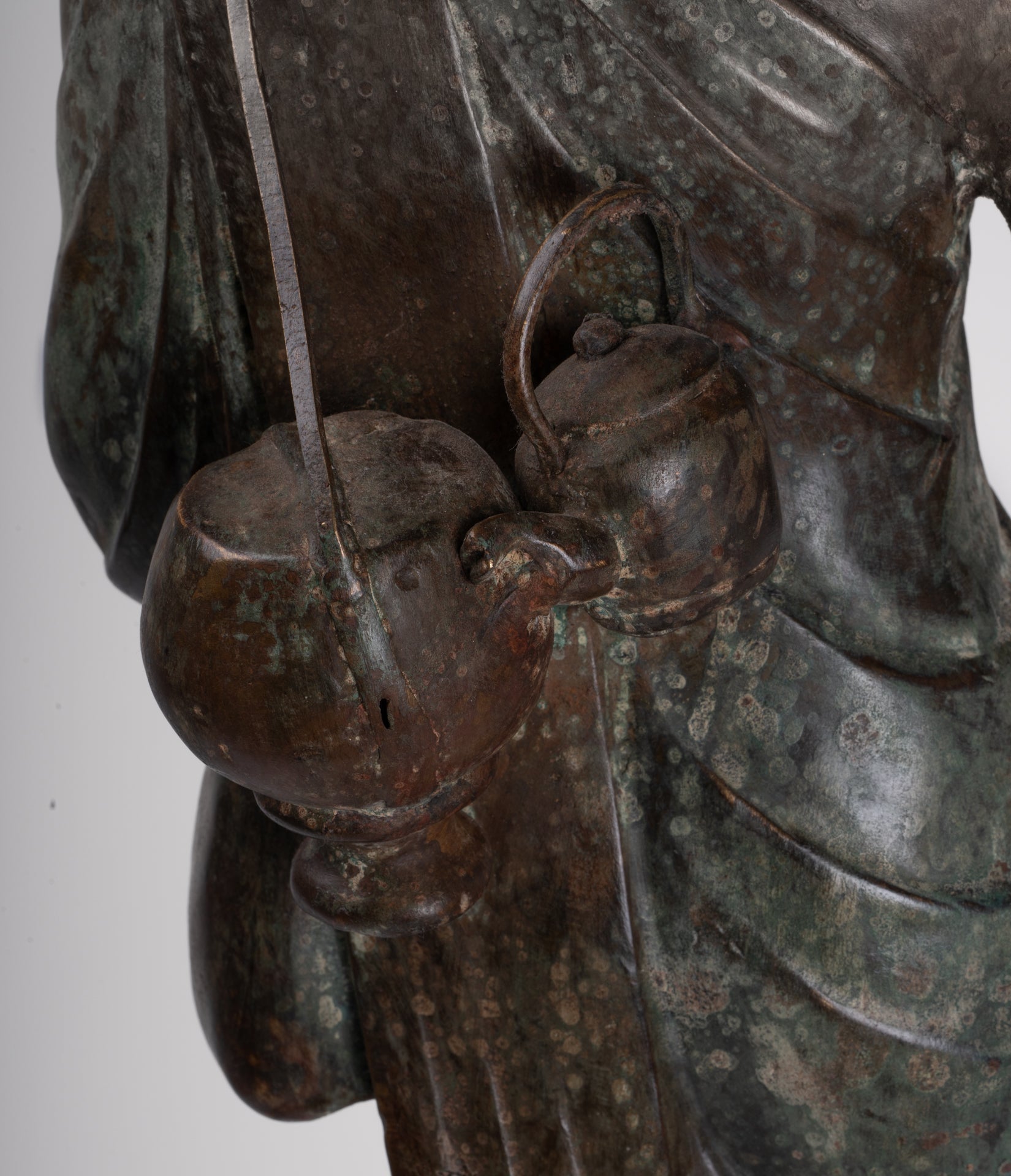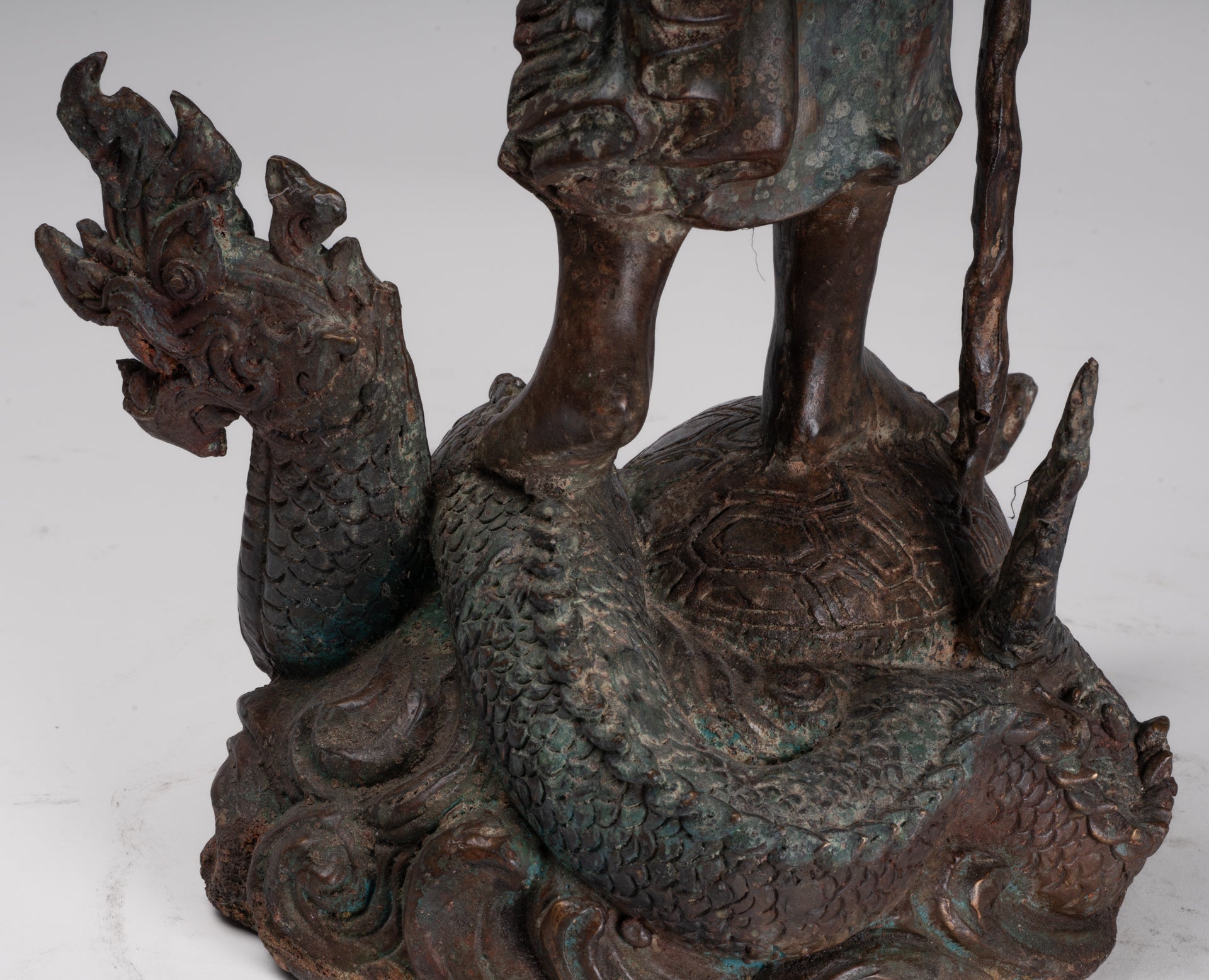-
Antique Thai Style Dvaravati Devotee Sīvali Disciple of Buddha Statue - 71cm/28"
Measurements - H71cm/28"
A beautiful and serene antique Thai style Sīvali, Arhat, Devotee or disciple of Buddha, stood with furled umbrella and walking staff.
In Buddhism, Sīvali, is often regarded as the patron saint of good fortune and abundance. Known for his extraordinary karma, generosity, and luck, Sīvali is widely revered in Theravāda Buddhism, especially in countries like Thailand, Sri Lanka, Myanmar, and Laos.
While he was not a central figure in the Buddha’s original sangha (community), Sīvali’s story offers profound lessons on resilience, generosity, and the impact of karma, making him a powerful symbol of auspiciousness and a source of inspiration for laypeople and monks alike.
Sīvali is a historical figure who lived during the time of the Buddha. His journey to becoming an arahant (a fully enlightened being) was marked by unusual challenges and an unwavering spirit. He was born as the son of Queen Suppavasa, who endured a difficult seven-year pregnancy with him. The Buddha predicted that the delay would lead to great karmic blessings, as it was a result of Sīvali’s past life actions, and that he would become an arahant with exceptional merit. Upon his birth, Queen Suppavasa’s suffering transformed into blessings, and Sīvali grew up destined to lead a life of exceptional spiritual and material abundance.
As he entered the monastic life under the Buddha, Sīvali’s incredible merit quickly became apparent. He was renowned for his ability to attract material resources wherever he went, ensuring that his fellow monks and laypeople were never in need. His connection to abundance earned him the title of “Arhat of Good Fortune,” and he is honored to this day as a saint of wealth, prosperity, and blessings.
The disciples of Buddha were not only followers but also played essential roles in the early development of Buddhist doctrines and practices. Their wisdom and experiences are recorded in various Buddhist texts, making them ideal subjects for veneration through statues.
The disciple has a peaceful countenance with downcast introspective eyes and a firm brow.
Here Sīvali is stood upon the turtle. A creature revered in Buddhism for its associations with patience, wisdom, longevity, and perseverance. The turtle is also connected to wisdom and earth elements in various spiritual traditions, including Buddhism. In many depictions, the turtle is a creature that moves between land and water, symbolizing the balance between groundedness and flow, physical presence, and spiritual insight. The turtle also helps to cultivate Inner Peace and Stability.Just as turtles carry their homes with them, Buddhist practitioners are reminded to find peace and stability within themselves. This inner sanctuary, cultivated through meditation and mindfulness, provides a refuge in the face of life’s uncertainties.
Although not as prominent as other symbols like the lotus or the lion, the turtle holds a special place in Buddhist thought, particularly in the teachings on mindfulness, the rarity of human rebirth, and the cultivation of inner peace.
Along with the turtle we can also see the protective Naga lying at the feet of Sīvali. Revered as guardians, protectors, and symbols of wisdom, Nāgas play an essential role in Buddhist culture, particularly in Southeast Asian and Himalayan countries. Known for their dual nature, Nāgas embody both earthly and spiritual qualities, and they serve as powerful reminders of the potential for inner transformation, protection, and enlightenment.
Disciple statues in Buddhism hold profound significance as symbols of enlightenment, embodiments of the Buddha’s teachings, and representations of virtuous qualities. They inspire and educate practitioners, serving as tangible connections to the historical figures who played crucial roles in the development of Buddhism.
Sīvali’s significance in Buddhism extends beyond his life as a monk and arhat. His journey from a challenging birth to a life of abundance illustrates the Buddhist principles of karma, resilience, and the transformative power of generosity.
For practitioners, Sīvali serves as a reminder that acts of kindness and selflessness can lead to an accumulation of merit, resulting in blessings both in this life and future lives.
By venerating Sīvali, Buddhists are encouraged to cultivate virtues of generosity, patience, and faith, trusting that their good deeds will bring positive outcomes.
As a patron saint of good fortune, abundance, and protection, Sīvali holds a unique place in the hearts of Buddhists, symbolizing hope, prosperity, and the fruits of virtuous living. Through his life and legacy, Sīvali teaches that generosity and resilience can pave the way to peace, prosperity, and ultimately, enlightenment.
To aid with safe transport your Buddha will be packed in a wood crate before shipping, with DHL. The cost of wood crating, packing and shipping (with DHL) is included.
This traditional in appearance piece is sure to bring serenity to your home, office or sacred space.
-
The majority of orders will be shipped with DHL. This is a secure, express and fully tracked service.
Items less than 2Kg we typically ship using Royal Mail.
Once we receive your order we try to ship all orders the same or next working day.
Large and/or fragile pieces requiring palletising, specialist crating and/or extra packaging may take a little longer. Palletised shipments will be delivered curbside.
All orders over 35 GBP will be shipped free of charge.

-
We genuinely hope that all purchases delight.
However, if they do not, regardless of reason, we will refund all orders upon receipt of the unwanted item. Just notify us within 14 days of receiving your order that you wish to make a return and send the piece back to us with 30 days of delivery.
Let Us Help You Find The Piece You Desire
What Our Customers Think
Arrived safely today! I’m very pleased with my purchase, thank you very much.
Sheila, Peterborough, UK
I received my bronze items. Thank you for the good packaging. I am pleased with the items.
Joyce, San Francisco, CA, USA
The Bayon sculpture is amazing. I really enjoy it. And thank you for the careful shipping.
Sylvain, Paris, France


